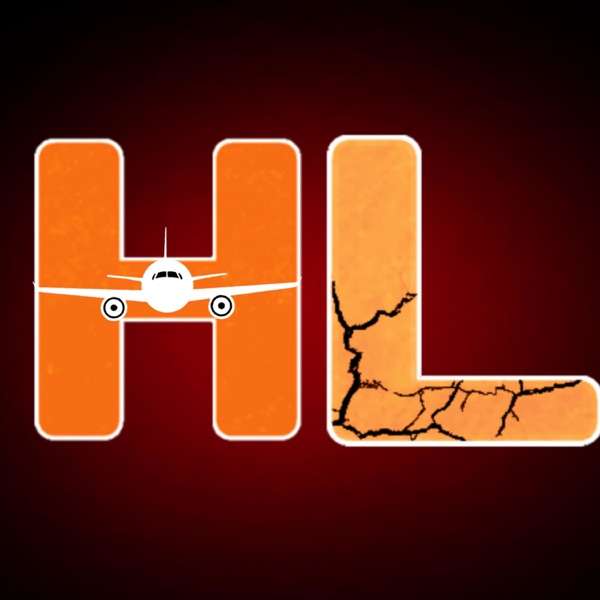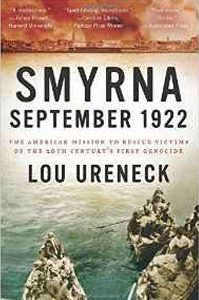
 Aug 22, 2016 – For this episode, our time machine takes us back to the aftermath of the First World War, where we’ll visit a defeated member of the Central Powers that targets ethnic minorities for wholesale slaughter. It’s not Nazi Germany, but Ottoman Turkey — in the final chapter of their genocide against Greeks, Armenians and other Christians, that the nation denies to this day.
Aug 22, 2016 – For this episode, our time machine takes us back to the aftermath of the First World War, where we’ll visit a defeated member of the Central Powers that targets ethnic minorities for wholesale slaughter. It’s not Nazi Germany, but Ottoman Turkey — in the final chapter of their genocide against Greeks, Armenians and other Christians, that the nation denies to this day.
Our guest, Lou Ureneck, is a professor at Boston University, and author of Smyrna, September 1922 – The American Mission to Rescue Victims of the 20th Century’s First Genocide . His book was published in hardcover as The Great Fire, a fitting title since the term Holocaust itself comes from the Greek words for “whole” and “burned.” The cosmopolitan, diverse city of Smyrna is long gone, and Turkey’s Izmir built on its ashes. This is the story of how two men — a low-level YMCA minister and a U.S. Navy officer, bucked the American government and a tide of indifference or outright hatred, to save over a million ethnic Greeks from certain death.
. His book was published in hardcover as The Great Fire, a fitting title since the term Holocaust itself comes from the Greek words for “whole” and “burned.” The cosmopolitan, diverse city of Smyrna is long gone, and Turkey’s Izmir built on its ashes. This is the story of how two men — a low-level YMCA minister and a U.S. Navy officer, bucked the American government and a tide of indifference or outright hatred, to save over a million ethnic Greeks from certain death.
You can learn more about this tale of cruelty and heroism, by visiting SmyrnaFire.com, Facebook.com/LouUreneckAuthor, or following at @LouisUreneck on Twitter. On a personal note, both James and Argyro Karayanis, Dean’s grandparents, hailed from this area of Asia Minor, and had their families wiped out by the Islamic Turks, who saw the native inhabitants of Anatolia and others like the Pontian Greeks and Assyrians, as infidels to be treated like — as Mr. Ureneck describes it — African-Americans in the Jim Crow South.
Visit the Greek Genocide Resource Center at Greek-Genocide.net for more on this atrocity, and check out the St. Photios Greek Orthodox Shrine in St. Augustine, Florida, founded by Greeks who migrated from Ottoman-occupied Greece in 1768 and founded the New World’s first Orthodox Christian settlement: New Smyrna.
We leaned heavily on the genealogy work of Catherine Karayanis in this episode, to piece together the Karayanis Family Tree — considered an impossible task for most who assume everything as “burned by the Turks.” Hellenic listeners in particular may want to check out what’s possible thanks to modern DNA technology and resources like Ancestry.com.
And, as a thank you for listening, Cathy and Dean share a favorite recipe from their book, Regional Greek Cooking . It’s “Soutsoukakia Smyrnaki,” or little sausages (more like meatballs) in the style of Smyrna. The city may be gone, but the history lives on in kitchens and homes all across the globe — and with the quarter of modern Greeks who chase their roots to “The Catastrophy.”
. It’s “Soutsoukakia Smyrnaki,” or little sausages (more like meatballs) in the style of Smyrna. The city may be gone, but the history lives on in kitchens and homes all across the globe — and with the quarter of modern Greeks who chase their roots to “The Catastrophy.”


 Our TOPPODCAST Picks
Our TOPPODCAST Picks  Stay Connected
Stay Connected


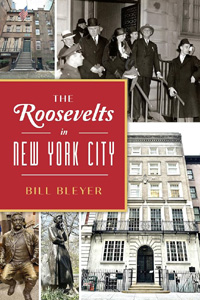
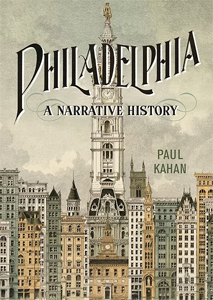

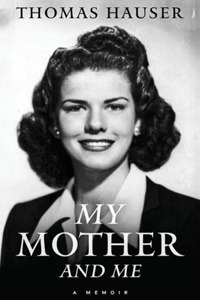
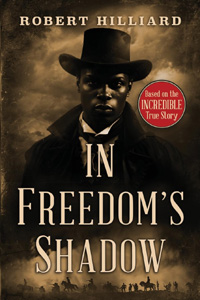


 ” The story hits the circuit of nameless clubs in Western Canda where two comedians — one, a veteran in the business from America; the other, a lady newcomer from Ireland — meet the aspiring headliner who’ll change their lives, and perhaps end them.
” The story hits the circuit of nameless clubs in Western Canda where two comedians — one, a veteran in the business from America; the other, a lady newcomer from Ireland — meet the aspiring headliner who’ll change their lives, and perhaps end them.
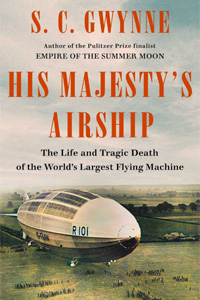





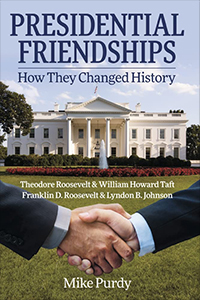
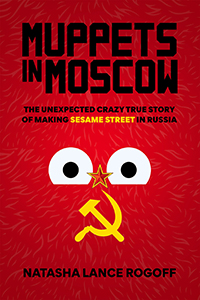




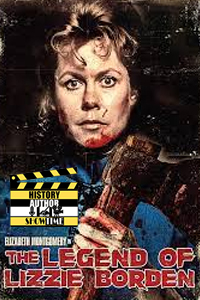


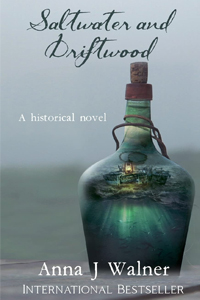
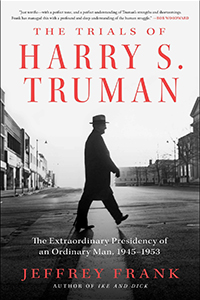
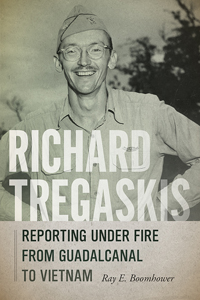

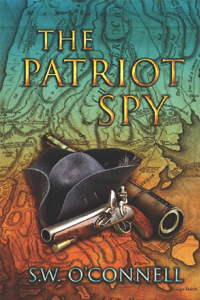
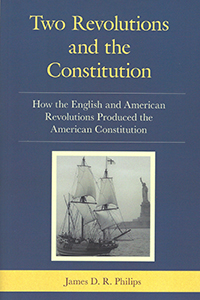

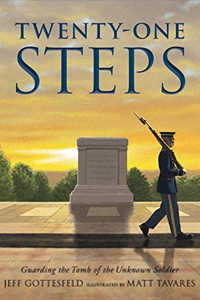
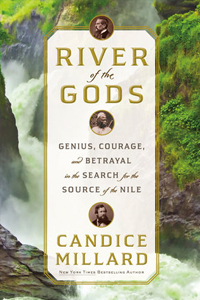
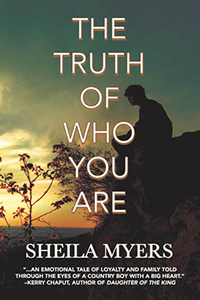
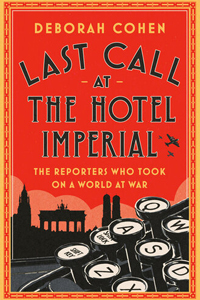
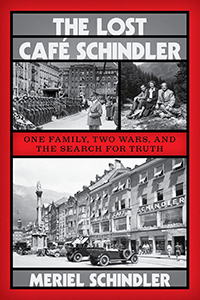


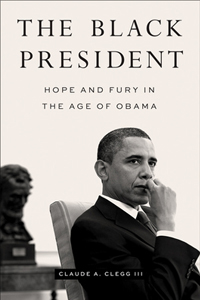


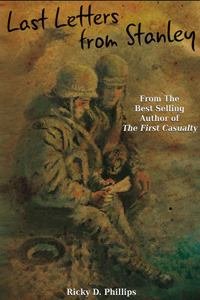

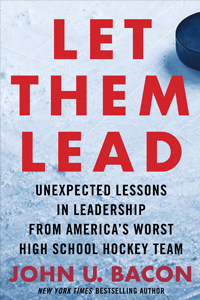

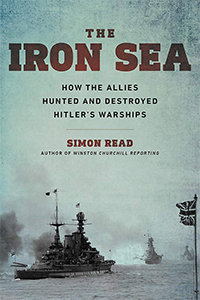
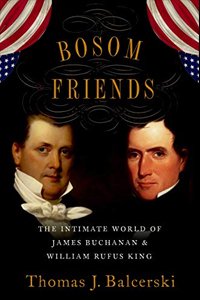
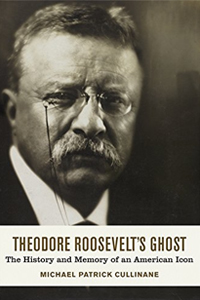
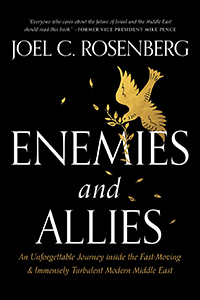

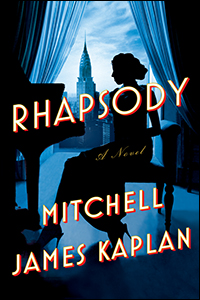
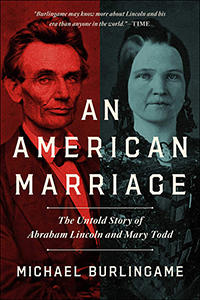
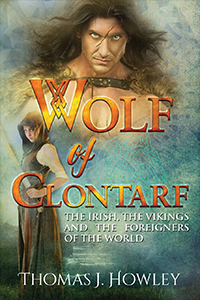
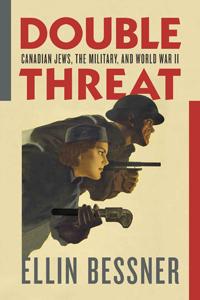

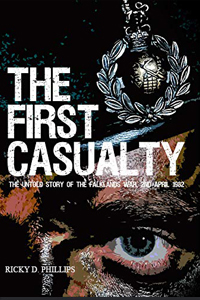

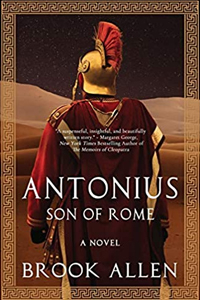


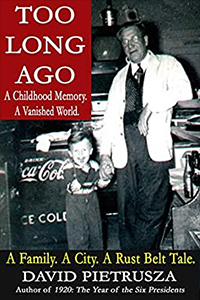

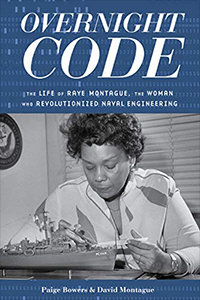


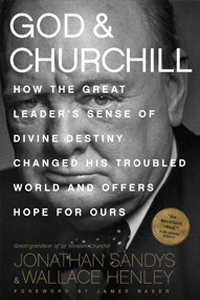
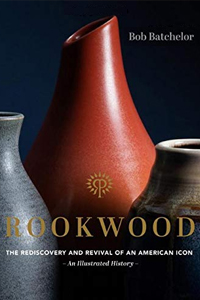
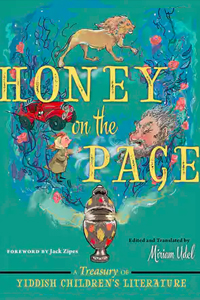
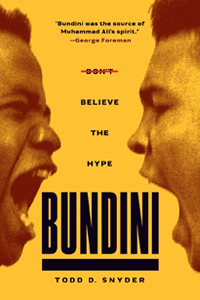

 November 2, 2020 – One of Europe’s greatest monsters. One of America’s greatest presidents. We’ll dig into the parallel paths that led these men and their nations to very different final destinations with renowned historian David Pietrusza. We sat down at the
November 2, 2020 – One of Europe’s greatest monsters. One of America’s greatest presidents. We’ll dig into the parallel paths that led these men and their nations to very different final destinations with renowned historian David Pietrusza. We sat down at the 


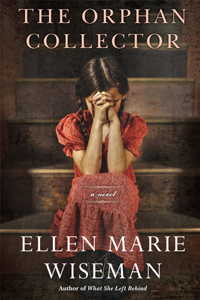

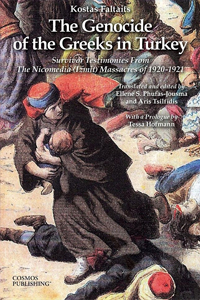
 Aug 24, 2020 – What if your grandparents had narrowly escaped a genocide that left one million people dead, just because they shared your faith and ethnic background? That’s part of the Karayanis family story, in the mass murder of Greeks by Ottoman Turkey that followed the Great War.
Aug 24, 2020 – What if your grandparents had narrowly escaped a genocide that left one million people dead, just because they shared your faith and ethnic background? That’s part of the Karayanis family story, in the mass murder of Greeks by Ottoman Turkey that followed the Great War.
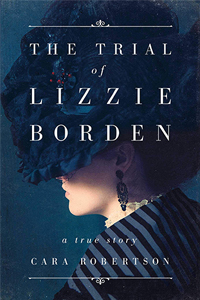
 August 10, 2020 – Lizzie Borden has been testified against by generations of children in a nursery rhyme, and continually convicted in the court of public opinion. But did she swing the axe that whacked her parents, or didn’t she? We dig into the 1893 murder trial with first-time author Cara Robertson. She brings us
August 10, 2020 – Lizzie Borden has been testified against by generations of children in a nursery rhyme, and continually convicted in the court of public opinion. But did she swing the axe that whacked her parents, or didn’t she? We dig into the 1893 murder trial with first-time author Cara Robertson. She brings us  .
.

 July 27, 2020 – Video killed the radio star, and the talkies killed Vaudeville, but some legends adapt to changing times. In this episode, we meet one such innovator, who made a series of leaps from New York City’s Hippodrome to Hollywood, with many entertaining stops and in between.
July 27, 2020 – Video killed the radio star, and the talkies killed Vaudeville, but some legends adapt to changing times. In this episode, we meet one such innovator, who made a series of leaps from New York City’s Hippodrome to Hollywood, with many entertaining stops and in between. . Find our guest online at
. Find our guest online at 
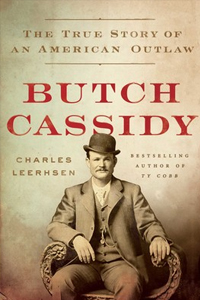
 July 13, 2020 – He’s the ultimate Civil War baby gone bad, born in 1866 with the modest handle of Robert Leroy Parker. So how did that dirt-poor son of a Mormon farmer grow up into a horse thief, rustler, and bank robber who ran with the Wild Bunch?
July 13, 2020 – He’s the ultimate Civil War baby gone bad, born in 1866 with the modest handle of Robert Leroy Parker. So how did that dirt-poor son of a Mormon farmer grow up into a horse thief, rustler, and bank robber who ran with the Wild Bunch? 
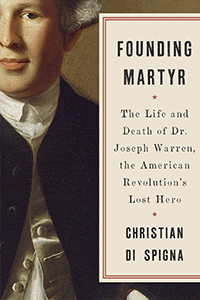
 June 29, 2020 – Doctor. Major General. Hero of the American Revolution. Martyr who spilled his lifeblood fighting the British at Bunker Hill. And yet most of us have never heard of him.
June 29, 2020 – Doctor. Major General. Hero of the American Revolution. Martyr who spilled his lifeblood fighting the British at Bunker Hill. And yet most of us have never heard of him. . Christian Di Spigna is a regular speaker and volunteer at Colonial Williamsburg, and an expert on the history of the era with a real passion for bringing the Revolution to life.
. Christian Di Spigna is a regular speaker and volunteer at Colonial Williamsburg, and an expert on the history of the era with a real passion for bringing the Revolution to life.

 June 15, 2020 – Investigative journalist and attorney Gerald Posner shares the highpoints of the pharmaceutical industry’s transformational successes, as well the moments they’d prefer to keep buried. We go along for the ride in his latest book,
June 15, 2020 – Investigative journalist and attorney Gerald Posner shares the highpoints of the pharmaceutical industry’s transformational successes, as well the moments they’d prefer to keep buried. We go along for the ride in his latest book,  . It’s a page-turning journey to meet the scientists whose successes have improved the lives of every human being on earth, and the marketers who gave us infamous scourges like Thalidomide and the opioid crisis.
. It’s a page-turning journey to meet the scientists whose successes have improved the lives of every human being on earth, and the marketers who gave us infamous scourges like Thalidomide and the opioid crisis.

 June 1, 2020 – Meet the commanders who led America to Victory in mankind’s most terrible conflict before they had stars on their shoulders. Our guide on this journey is 82nd Airborne veteran and paratrooper Benjamin Runkle. He brings us
June 1, 2020 – Meet the commanders who led America to Victory in mankind’s most terrible conflict before they had stars on their shoulders. Our guide on this journey is 82nd Airborne veteran and paratrooper Benjamin Runkle. He brings us  .
.

 May 18, 2020 – In an iconic, ad-libbed moment at the old Yankee Stadium, a terminally ill baseball player declared himself “the luckiest man on the face of the earth.” A decade earlier, he’d sat down to write the remarkable story of his career in newspaper columns that remained buried for almost a century — until now. In
May 18, 2020 – In an iconic, ad-libbed moment at the old Yankee Stadium, a terminally ill baseball player declared himself “the luckiest man on the face of the earth.” A decade earlier, he’d sat down to write the remarkable story of his career in newspaper columns that remained buried for almost a century — until now. In  , we meet Major League Baseball’s most triumphant and tragic slugger as a young man with a great career in front of him.
, we meet Major League Baseball’s most triumphant and tragic slugger as a young man with a great career in front of him.
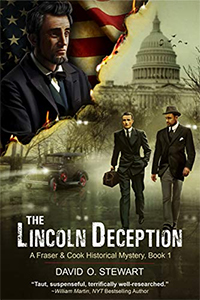
 May 4, 2020 – What if a former U.S. congressman told you he had a secret about the most infamous presidential assassination, but died before revealing it? It’s a turn-of-the-century whodunit, courtesy of historian
May 4, 2020 – What if a former U.S. congressman told you he had a secret about the most infamous presidential assassination, but died before revealing it? It’s a turn-of-the-century whodunit, courtesy of historian  .
.

 April 20, 2020 – In 1863, the Confederate States held a last stronghold on the Mississippi River: Vicksburg. Losing it, and the slavocracy would be sliced in half, mortally wounding their cause. Donald L. Miller musters us into the Grand Army of the Republic’s campaign to capture this city on its high bluff in Vicksburg: Grant’s Campaign That Broke the Confederacy.
April 20, 2020 – In 1863, the Confederate States held a last stronghold on the Mississippi River: Vicksburg. Losing it, and the slavocracy would be sliced in half, mortally wounding their cause. Donald L. Miller musters us into the Grand Army of the Republic’s campaign to capture this city on its high bluff in Vicksburg: Grant’s Campaign That Broke the Confederacy.
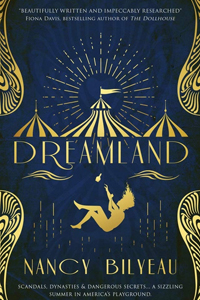
 April 6, 2020 – Pack your full-body swimsuit, everybody. We’re headed for Coney Island in the summer of 1911, where we’ll meet a young heiress, Peggy Batternberg. Peggy falls in love, dives into the seedy world where the other half lives, and stumbles upon the mystery of young women found murdered under the boardwalk.
April 6, 2020 – Pack your full-body swimsuit, everybody. We’re headed for Coney Island in the summer of 1911, where we’ll meet a young heiress, Peggy Batternberg. Peggy falls in love, dives into the seedy world where the other half lives, and stumbles upon the mystery of young women found murdered under the boardwalk.
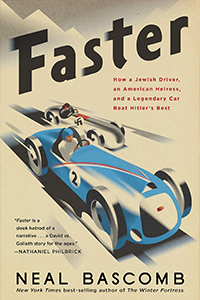
 March 23, 2020 – Adolf Hitler … had a need for speed. After all, it was the key feature in blitzkrieg, lightning war. So the Nazis poured resources into developing the fastest engines, sleekest race cars, and best drivers. Who dared stand against them? We’ll meet the Jewish driver who took on these would-be Aryan supermen in
March 23, 2020 – Adolf Hitler … had a need for speed. After all, it was the key feature in blitzkrieg, lightning war. So the Nazis poured resources into developing the fastest engines, sleekest race cars, and best drivers. Who dared stand against them? We’ll meet the Jewish driver who took on these would-be Aryan supermen in  .
.
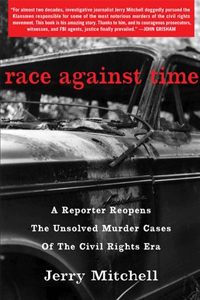
 March 9, 2020 – Jerry Mitchell joins us with
March 9, 2020 – Jerry Mitchell joins us with  . In addition to what we today know as the Mississippi Burning case, this unique memoir covers our guest’s efforts in the assassination of Medgar Evers, the 16th Street Church bombing, and the firebombing of Vernon Dahmer.
. In addition to what we today know as the Mississippi Burning case, this unique memoir covers our guest’s efforts in the assassination of Medgar Evers, the 16th Street Church bombing, and the firebombing of Vernon Dahmer.
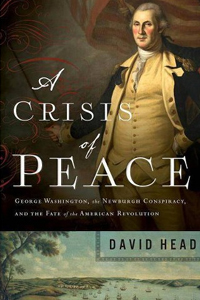
 February 24, 2020 – What if the Revolution sparked in 1776 had collapsed? In this episode, our time machine travels back to the last days of the American Revolution, to track down rumors of an unthinkable plot by the Continental Army to mutiny over lack of pay. Only George Washington stood against the passions of men that may have included such patriots Alexander Hamilton and James Madison?
February 24, 2020 – What if the Revolution sparked in 1776 had collapsed? In this episode, our time machine travels back to the last days of the American Revolution, to track down rumors of an unthinkable plot by the Continental Army to mutiny over lack of pay. Only George Washington stood against the passions of men that may have included such patriots Alexander Hamilton and James Madison? . Professor Head is a history professor at the University of Central Florida whose work has been supported by the National Endowment for the Humanities and George Washington’s Mt. Vernon.
. Professor Head is a history professor at the University of Central Florida whose work has been supported by the National Endowment for the Humanities and George Washington’s Mt. Vernon.



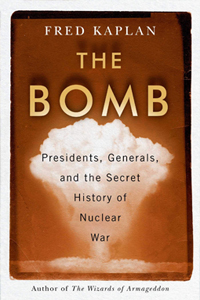


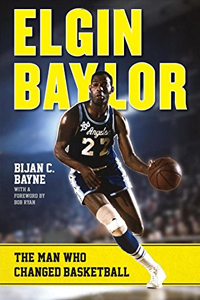 January 13, 2020 – Our time machine travels back to the Civil Rights era, to meet a man who fought the racial discrimination of his day on the basketball court, while using his platform to support those battling in courts of law. In the process, he was the first man ever described as a “superstar.”
January 13, 2020 – Our time machine travels back to the Civil Rights era, to meet a man who fought the racial discrimination of his day on the basketball court, while using his platform to support those battling in courts of law. In the process, he was the first man ever described as a “superstar.” . Giving us play by play courtside for the man who invented hangtime is award-winning cultural critic and sportswriter, Bijan C. Bayne. Bayne is a member of United States Basketball Writers Association, a founding member of the Internet Baseball Writers Association of America, and an executive board member and media relations director for the Association for Professional Basketball Research.
. Giving us play by play courtside for the man who invented hangtime is award-winning cultural critic and sportswriter, Bijan C. Bayne. Bayne is a member of United States Basketball Writers Association, a founding member of the Internet Baseball Writers Association of America, and an executive board member and media relations director for the Association for Professional Basketball Research.
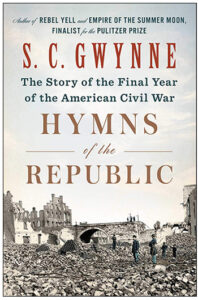
 December 16, 2019 – Our time machine travels back to the death throes of the Confederate States of America with New York Times best-selling author and Pulitzer Prize finalist
December 16, 2019 – Our time machine travels back to the death throes of the Confederate States of America with New York Times best-selling author and Pulitzer Prize finalist  .
.
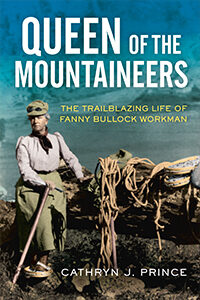
 December 2, 2019 – Why would a Gilded Age woman climb the tallest mountains in the world? For the same reason a man would, of course: Because it’s there. We meet the pioneer whose ambitions shattered glass ceilings on the very top of the world in
December 2, 2019 – Why would a Gilded Age woman climb the tallest mountains in the world? For the same reason a man would, of course: Because it’s there. We meet the pioneer whose ambitions shattered glass ceilings on the very top of the world in  .
.
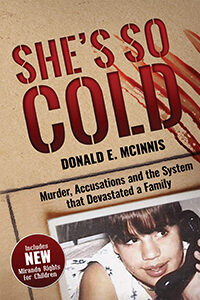
 November 18, 2019 – What if you woke up to find your 12-year-old daughter dead, and the local police destroyed your house looking for evidence to pin the murder on your innocent son? Attorney Donald E. McInnis introduces us to the real-life family that endured this nightmare in
November 18, 2019 – What if you woke up to find your 12-year-old daughter dead, and the local police destroyed your house looking for evidence to pin the murder on your innocent son? Attorney Donald E. McInnis introduces us to the real-life family that endured this nightmare in  .
.
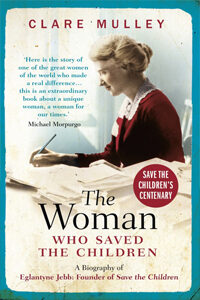
 November 4, 2019 – How did a “spinster” who declared, “I don’t care for children,” and called them “little wretches,” launch an organization that not only saved millions of them, but changed the way the world treats young people to this day? Clare Mulley returns to introduce us into this enigmatic force for good in
November 4, 2019 – How did a “spinster” who declared, “I don’t care for children,” and called them “little wretches,” launch an organization that not only saved millions of them, but changed the way the world treats young people to this day? Clare Mulley returns to introduce us into this enigmatic force for good in  .
. 


 . We last chatted with the legendary historian about his latest title,
. We last chatted with the legendary historian about his latest title, 

 October 7, 2019 – What’s a “honeyfuggle,” and why did Theodore Roosevelt call William Howard Taft one? In this episode, presidential historian Mike Purdy checks in with the 44 men who’ve served as our presidents as they roast, criticize, and belittle fellow commanders-in-chief in a manner that would make Don Rickles smile. And who wouldn’t want to hear Benjamin Harrison mock Grover Cleveland on two, non-consecutive occasions?
October 7, 2019 – What’s a “honeyfuggle,” and why did Theodore Roosevelt call William Howard Taft one? In this episode, presidential historian Mike Purdy checks in with the 44 men who’ve served as our presidents as they roast, criticize, and belittle fellow commanders-in-chief in a manner that would make Don Rickles smile. And who wouldn’t want to hear Benjamin Harrison mock Grover Cleveland on two, non-consecutive occasions? . Mike Purdy is the founder of
. Mike Purdy is the founder of 

 September 23, 2019 – What if your family name was infamous? What if you were the only loyal American in a clan where everyone — even your little, old grandmother — backed treason? Jane B. Singer introduces us to just such a man in
September 23, 2019 – What if your family name was infamous? What if you were the only loyal American in a clan where everyone — even your little, old grandmother — backed treason? Jane B. Singer introduces us to just such a man in  . It’s the true story of Confederate General John H. Winder and his son, Union Captain William Andrew Winder, who served as prison commandants on opposite sides of the Mason-Dixon line.
. It’s the true story of Confederate General John H. Winder and his son, Union Captain William Andrew Winder, who served as prison commandants on opposite sides of the Mason-Dixon line.
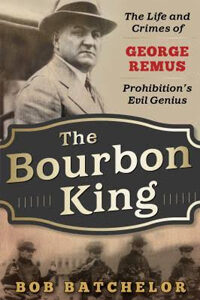
 September 9, 2019 – Bob Batchelor introduces us to the boisterous, brass-knuckles bootlegger who quenched Dry America’s thirst in the Roaring Twenties. His book is
September 9, 2019 – Bob Batchelor introduces us to the boisterous, brass-knuckles bootlegger who quenched Dry America’s thirst in the Roaring Twenties. His book is  . We last caught up with Bob to chat about his book
. We last caught up with Bob to chat about his book 
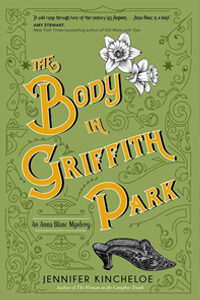
 August 26, 2019 – Women aren’t allowed to be police officers in 1908 Los Angeles, but that’s never stopped Anna Blanc from catching killers. Besides, it’s not her fault she keeps stumbling across corpses, or that she’s the keenest legal mind this side of Sherlock Holmes.
August 26, 2019 – Women aren’t allowed to be police officers in 1908 Los Angeles, but that’s never stopped Anna Blanc from catching killers. Besides, it’s not her fault she keeps stumbling across corpses, or that she’s the keenest legal mind this side of Sherlock Holmes. . You can catch our chat about her debut,
. You can catch our chat about her debut, 
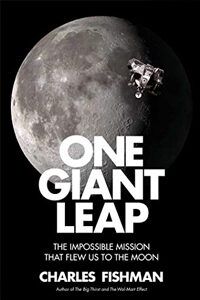
 August 12, 2019 – Our time machine boldly goes where no man has gone before, fulfilling President John F. Kennedy’s 1961 challenge to put an American on the moon and return him safely to earth by the end of that decade. Half a century after NASA fulfilled JFK’s vision in the summer of 1969, we look back at the long road of 10,000 small human steps and giant technological leaps, that led to Neil Armstrong stamping his footprint in the lunar dust.
August 12, 2019 – Our time machine boldly goes where no man has gone before, fulfilling President John F. Kennedy’s 1961 challenge to put an American on the moon and return him safely to earth by the end of that decade. Half a century after NASA fulfilled JFK’s vision in the summer of 1969, we look back at the long road of 10,000 small human steps and giant technological leaps, that led to Neil Armstrong stamping his footprint in the lunar dust. . Charles Fishman has earned three Gerald Loeb Awards, the most prestigious prize in business journalism. He’s also the acclaimed author of
. Charles Fishman has earned three Gerald Loeb Awards, the most prestigious prize in business journalism. He’s also the acclaimed author of  and
and  , as well as co-author of
, as well as co-author of  with Academy Award-winning producer and New York Times best-selling author Brian Grazer. Find our guest on Twitter at CFishman.
with Academy Award-winning producer and New York Times best-selling author Brian Grazer. Find our guest on Twitter at CFishman.
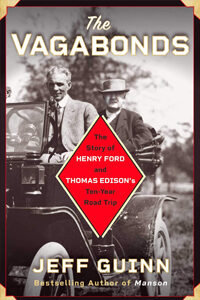
 July 29, 2019 – What do you get when two icons of the Industrial Revolution pile into a Model T and speed off to look for America? A one-of-a kind road-trip, peppered with Jazz Age characters like Harvey Firestone, John Burroughs, President Calvin Coolidge, and hardscrabble fiddler Jep Bisbee. Gassing us up for this journey is Jeff Guinn who brings us
July 29, 2019 – What do you get when two icons of the Industrial Revolution pile into a Model T and speed off to look for America? A one-of-a kind road-trip, peppered with Jazz Age characters like Harvey Firestone, John Burroughs, President Calvin Coolidge, and hardscrabble fiddler Jep Bisbee. Gassing us up for this journey is Jeff Guinn who brings us  .
.


 . Peter Stark is an adventure writer and historian. He’s a correspondent for Outside magazine, and you’ve seen his work in places like Smithsonian, The New Yorker, The New York Times Magazine, and Men’s Journal.
. Peter Stark is an adventure writer and historian. He’s a correspondent for Outside magazine, and you’ve seen his work in places like Smithsonian, The New Yorker, The New York Times Magazine, and Men’s Journal.
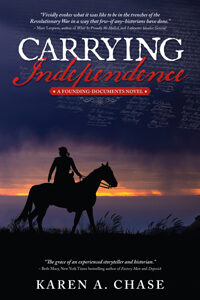
 July 1, 2019 – Our time machine travels back to the American Revolution, where we’ll meet Nathaniel Marten, a young Post Rider tasked with the solemn duty of gathering signatures for the Declaration of Independence. Our guide on this journey is Karen A. Chase, who brings us
July 1, 2019 – Our time machine travels back to the American Revolution, where we’ll meet Nathaniel Marten, a young Post Rider tasked with the solemn duty of gathering signatures for the Declaration of Independence. Our guide on this journey is Karen A. Chase, who brings us  .
. , also met with critical acclaim, earning seven independent publishing awards.
, also met with critical acclaim, earning seven independent publishing awards.
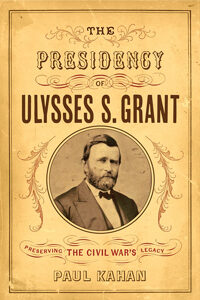
 Jun 17, 2019 – We welcome a familiar passenger back our time machine. It’s Dr. Paul Kahan, who we last chatted with about his book
Jun 17, 2019 – We welcome a familiar passenger back our time machine. It’s Dr. Paul Kahan, who we last chatted with about his book 

 ,
,  .
.

 . Shelley Wood’s work has appeared in The New Quarterly, Room, The Antigonish Review, Bath Flash Fiction, and The Globe and Mail. She earned the Frank McCourt prize for creative nonfiction, Freefall Magazine’s short prose contest and Causeway Lit’s creative nonfiction prize.
. Shelley Wood’s work has appeared in The New Quarterly, Room, The Antigonish Review, Bath Flash Fiction, and The Globe and Mail. She earned the Frank McCourt prize for creative nonfiction, Freefall Magazine’s short prose contest and Causeway Lit’s creative nonfiction prize.
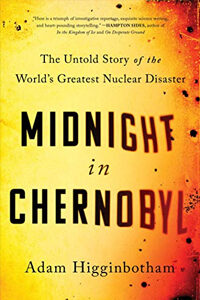
 Our time machine travels back to the nuclear nightmare at the Soviet Union’s V.I. Lenin Nuclear Power Station — as destined to fail, as the political system of its namesake. On April 26, 1986, Reactor No. 4 exploded, and in the 30 years since, a name that few in the world could have placed, has become synonymous with radioactive Armageddon. What really happened?
Our time machine travels back to the nuclear nightmare at the Soviet Union’s V.I. Lenin Nuclear Power Station — as destined to fail, as the political system of its namesake. On April 26, 1986, Reactor No. 4 exploded, and in the 30 years since, a name that few in the world could have placed, has become synonymous with radioactive Armageddon. What really happened? . Drawing on hundreds of hours of interviews as well as letters, unpublished memoirs, and recently declassified archives, Higginbotham has written the true history at last in a book that reads like a thriller.
. Drawing on hundreds of hours of interviews as well as letters, unpublished memoirs, and recently declassified archives, Higginbotham has written the true history at last in a book that reads like a thriller.

 April 22, 2019 – We welcome a familiar face back into our time machine, and travel back to a parched New York City, suffering from a drought that began in a sweltering 1949, and stretched into 1950 with no end in sight. Desperate for rain, Mayor William O’Dwyer hired Dr. Wallace E. Howell, a handsome, 35-year-old meteorologist out of Harvard who approached weather modification as a cool-headed scientist, not a Music Man-style huckster.
April 22, 2019 – We welcome a familiar face back into our time machine, and travel back to a parched New York City, suffering from a drought that began in a sweltering 1949, and stretched into 1950 with no end in sight. Desperate for rain, Mayor William O’Dwyer hired Dr. Wallace E. Howell, a handsome, 35-year-old meteorologist out of Harvard who approached weather modification as a cool-headed scientist, not a Music Man-style huckster. , by author Jim Leeke. Jim is a contributor to the Society for American Baseball Research Baseball Biography Project, as well as the writer or editor of several books on U.S. and military history.
, by author Jim Leeke. Jim is a contributor to the Society for American Baseball Research Baseball Biography Project, as well as the writer or editor of several books on U.S. and military history.
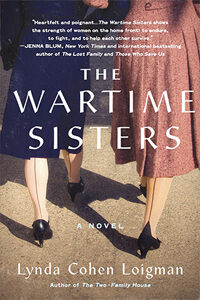
 April 8, 2019 – Our time machine welcomes aboard book lovers live at the
April 8, 2019 – Our time machine welcomes aboard book lovers live at the  . It’s the sophomore offering after her critically acclaimed debut The Two-Family House, a 2016 nominee for the Goodreads Choice Awards in Historical Fiction.
. It’s the sophomore offering after her critically acclaimed debut The Two-Family House, a 2016 nominee for the Goodreads Choice Awards in Historical Fiction.
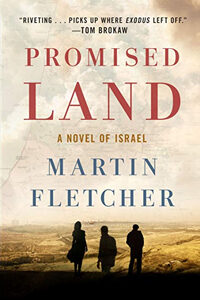
 March 25, 2019 – In this episode, our time machine travels back to post-World War 2 Israel. When we arrive, we’ll follow its return to statehood — beset by enemies on three sides and their back against the sea on the fourth — through the eyes of two fictional brothers and the woman they love. Our guide on this journey is Martin Fletcher who brings us
March 25, 2019 – In this episode, our time machine travels back to post-World War 2 Israel. When we arrive, we’ll follow its return to statehood — beset by enemies on three sides and their back against the sea on the fourth — through the eyes of two fictional brothers and the woman they love. Our guide on this journey is Martin Fletcher who brings us  .
.
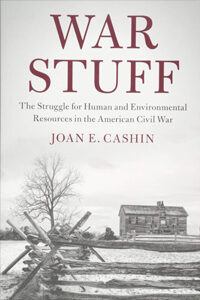
 March 11, 2019 – Our time machine travels back to the American Civil War for a look at the toll paid by civilians and the countryside trampled under the boots, hooves and wagon wheels of rampaging armies. We’re all familiar with the devastation wrought on soldiers, but after a century-and-a-half, those sacrifices have become romanticized — and battlefields once soaked with blood and littered with corpses, are now pristine national parks.
March 11, 2019 – Our time machine travels back to the American Civil War for a look at the toll paid by civilians and the countryside trampled under the boots, hooves and wagon wheels of rampaging armies. We’re all familiar with the devastation wrought on soldiers, but after a century-and-a-half, those sacrifices have become romanticized — and battlefields once soaked with blood and littered with corpses, are now pristine national parks. . Joan earned a B.A. from The American University and a Ph.D. from Harvard. Today, she is a Professor of History at the Ohio State University in addition to her duties as editor of Our Common Affairs: Texts from Women in the Old South.
. Joan earned a B.A. from The American University and a Ph.D. from Harvard. Today, she is a Professor of History at the Ohio State University in addition to her duties as editor of Our Common Affairs: Texts from Women in the Old South. and
and  . She also edited the book War Matters: Material Culture in the Civil War Era. You can follow our guest on Twitter
. She also edited the book War Matters: Material Culture in the Civil War Era. You can follow our guest on Twitter 
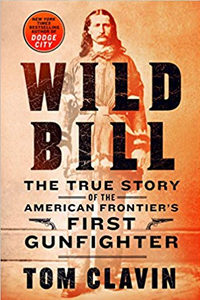 February 25, 2019 – We welcome a familiar face back into the passenger seat of our time machine. It’s Tom Clavin, who we last chatted with about the book,
February 25, 2019 – We welcome a familiar face back into the passenger seat of our time machine. It’s Tom Clavin, who we last chatted with about the book,  . Tom Clavin is the author or coauthor of sixteen books, including the #1 best-seller
. Tom Clavin is the author or coauthor of sixteen books, including the #1 best-seller  .
.
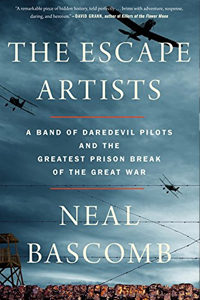
 February 11, 2019 – We welcome one of our favorite authors back into our time machine. It’s Neal Bascomb. We last caught up with him in Nazi-occupied Norway for the bone-chilling tale of
February 11, 2019 – We welcome one of our favorite authors back into our time machine. It’s Neal Bascomb. We last caught up with him in Nazi-occupied Norway for the bone-chilling tale of  .
.
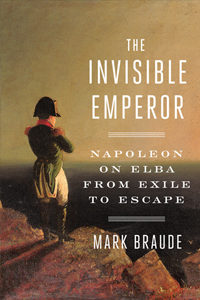
 January 28, 2019 – Mark Braude,
January 28, 2019 – Mark Braude,  , brings us the tale of a legendary military leader who’s almost too big for the word legend. Napoleon Bonaparte of France. We meet the titan of France not at the peak of his power, but at his low-point: Cast out, kicked off the throne, and walking among the citizens of a tiny island as one of them.
, brings us the tale of a legendary military leader who’s almost too big for the word legend. Napoleon Bonaparte of France. We meet the titan of France not at the peak of his power, but at his low-point: Cast out, kicked off the throne, and walking among the citizens of a tiny island as one of them. . Mark Braude is a National Endowment for the Humanities 2017-2018 Public Scholar and former lecturer of history at Stanford University, having earned a Ph.D. in Modern European History from the University of Southern California, as well as a Masters in French Studies from our own New York University.
. Mark Braude is a National Endowment for the Humanities 2017-2018 Public Scholar and former lecturer of history at Stanford University, having earned a Ph.D. in Modern European History from the University of Southern California, as well as a Masters in French Studies from our own New York University.
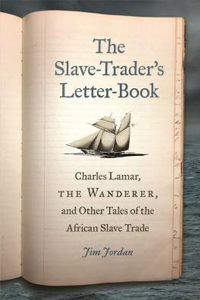
 January 24, 2019 – Our time machine transports us back to the Savannah, Georgia, of 1858, where we’ll meet Charles Lamar. Ignoring the law of the United States, Lamar organizes the transportation of hundreds of Africans aboard the yacht Wanderer. This criminal act strikes a hammer blow on the fault lines of America society, marking the first importation of human beings as slaves in four decades. Piecing together the true story with a treasure trove of newly discovered documents is Jim Jordan who brings us
January 24, 2019 – Our time machine transports us back to the Savannah, Georgia, of 1858, where we’ll meet Charles Lamar. Ignoring the law of the United States, Lamar organizes the transportation of hundreds of Africans aboard the yacht Wanderer. This criminal act strikes a hammer blow on the fault lines of America society, marking the first importation of human beings as slaves in four decades. Piecing together the true story with a treasure trove of newly discovered documents is Jim Jordan who brings us  , and its sequel,
, and its sequel,  . In 2018, he earned the Georgia Historical Records Advisory Counsel of the University System of Georgia’s Award for Excellence in Documenting Georgia’s History.
. In 2018, he earned the Georgia Historical Records Advisory Counsel of the University System of Georgia’s Award for Excellence in Documenting Georgia’s History.
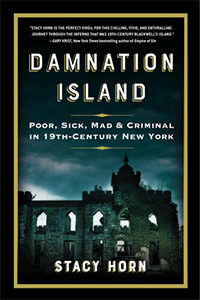
 December 31, 2018 – Our time machine travels back to a two-mile sliver of land in New York City’s East River. Since 1971, it has been known as Roosevelt Island. But the Victorians knew it as Blackwell’s Island, a dreaded name synonymous with illness, insanity, poverty, prisons and purgatory. You could suffer there for a variety of crimes, or for things as simple as being a woman walking alone late at night, an immigrant who didn’t speak English, or someone too poor to make bail.
December 31, 2018 – Our time machine travels back to a two-mile sliver of land in New York City’s East River. Since 1971, it has been known as Roosevelt Island. But the Victorians knew it as Blackwell’s Island, a dreaded name synonymous with illness, insanity, poverty, prisons and purgatory. You could suffer there for a variety of crimes, or for things as simple as being a woman walking alone late at night, an immigrant who didn’t speak English, or someone too poor to make bail.
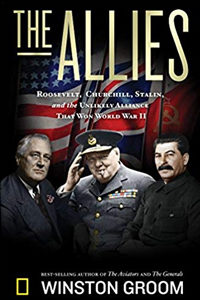

 . We last heard from Nick when he invited me to conduct a live interview at the Joint Journalism and Communication History Conference at NYU’s Arthur L. Carter Journalism Institute. Our guest that day was Ephemeral New York’s
. We last heard from Nick when he invited me to conduct a live interview at the Joint Journalism and Communication History Conference at NYU’s Arthur L. Carter Journalism Institute. Our guest that day was Ephemeral New York’s 
 November 19, 2018 – Our time machine hauls out the big, bulky Speed Graphic camera and watches the ultimate watcher of watchers in 1930s, ’40s and ’50s New York City: Arthur Fellig. Helping haul the tripod around to various crime scenes and disasters is Christopher Bonanos who brings us
November 19, 2018 – Our time machine hauls out the big, bulky Speed Graphic camera and watches the ultimate watcher of watchers in 1930s, ’40s and ’50s New York City: Arthur Fellig. Helping haul the tripod around to various crime scenes and disasters is Christopher Bonanos who brings us  . Even if you don’t know the name, you’ve seen his gritty images from the 1930s through ’50s.
. Even if you don’t know the name, you’ve seen his gritty images from the 1930s through ’50s. . Follow him on Twitter
. Follow him on Twitter 
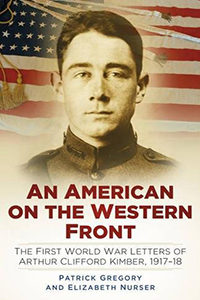
 November 5, 2018 – Our time machine soars over the Great War’s trenches — and gets down and dirty on ground level — through the eyes of a pilot in the very early days of U.S. air power. Our guide on this journey is Patrick Gregory, co-author of
November 5, 2018 – Our time machine soars over the Great War’s trenches — and gets down and dirty on ground level — through the eyes of a pilot in the very early days of U.S. air power. Our guide on this journey is Patrick Gregory, co-author of  .
.
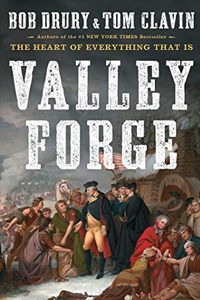
 October 22, 2018 – Our time machine travels back to “the times that try men’s souls,” when Thomas Payne wrote that phrase to embody the struggles of Gen. George Washington’s beaten-but-not-broken army and the precarious cause of American independence.
October 22, 2018 – Our time machine travels back to “the times that try men’s souls,” when Thomas Payne wrote that phrase to embody the struggles of Gen. George Washington’s beaten-but-not-broken army and the precarious cause of American independence. , #1 New York Times best-selling team
, #1 New York Times best-selling team  . You’ve seen Bob Drury’s work in the nine books he’s authored, co-authored or edited, and in places such as the New York Times, Vanity Fair, GQ and Men’s Journal where he’s a contributing editor and foreign correspondent. Tom Clavin is the author or coauthor of sixteen books, a fifteen-year veteran of the New York Times and contributor to top periodicals including Manhattan Magazine, where he’s the investigative features correspondent.
. You’ve seen Bob Drury’s work in the nine books he’s authored, co-authored or edited, and in places such as the New York Times, Vanity Fair, GQ and Men’s Journal where he’s a contributing editor and foreign correspondent. Tom Clavin is the author or coauthor of sixteen books, a fifteen-year veteran of the New York Times and contributor to top periodicals including Manhattan Magazine, where he’s the investigative features correspondent.

 October 8, 2018 – Our time machine travels back to America’s experience in the Great War through the eyes of former president and hero of the Spanish-American War Theodore Roosevelt, whose four sons suited up to fight over there. Leading us through basic training is David Pietrusza, author of
October 8, 2018 – Our time machine travels back to America’s experience in the Great War through the eyes of former president and hero of the Spanish-American War Theodore Roosevelt, whose four sons suited up to fight over there. Leading us through basic training is David Pietrusza, author of  .
.

 September 24, 2018 – Our time machine welcomes aboard infamous bank robbing-legends Bonnie and Clyde, as they tear a gash across 1930s America at the height of the Great Depression. Returning to ride shotgun with us on this crime spree is Jenni L. Walsh,
September 24, 2018 – Our time machine welcomes aboard infamous bank robbing-legends Bonnie and Clyde, as they tear a gash across 1930s America at the height of the Great Depression. Returning to ride shotgun with us on this crime spree is Jenni L. Walsh,  .
. . In it, we meet a very different couple in a crippled America. Instead of basking in Bonnie’s love, snug in her arms, Clyde is suffering the abuse that helps harden his heart in a Texas prison.
. In it, we meet a very different couple in a crippled America. Instead of basking in Bonnie’s love, snug in her arms, Clyde is suffering the abuse that helps harden his heart in a Texas prison.

 August 27, 2018 – Our time machine whirls us back to the Civil War sickbed of 12-year-old LeRoy Wiley Gresham. This young voice of the Old South in Macon, Georgia — rendered an invalid after a mysterious accident, and ignorant of the tuberculosis marching him towards an early grave — left us the only diary of a male, teenage non-combatant.
August 27, 2018 – Our time machine whirls us back to the Civil War sickbed of 12-year-old LeRoy Wiley Gresham. This young voice of the Old South in Macon, Georgia — rendered an invalid after a mysterious accident, and ignorant of the tuberculosis marching him towards an early grave — left us the only diary of a male, teenage non-combatant. . Our guest is Theodore P. Savas — attorney, author, publishing consultant, agent, and the managing director of Savas Beatie. Ted acquired the diaries and did what historians thought impossible: Added a fresh new voice to our understanding of the Civil War.
. Our guest is Theodore P. Savas — attorney, author, publishing consultant, agent, and the managing director of Savas Beatie. Ted acquired the diaries and did what historians thought impossible: Added a fresh new voice to our understanding of the Civil War. by Dennis A. Rasbach MD FACS and Janet Croon. You can also visit the Gresham home where LeRoy lived, wrote, and died at
by Dennis A. Rasbach MD FACS and Janet Croon. You can also visit the Gresham home where LeRoy lived, wrote, and died at 

 August 13, 2018 – We welcome Fiona Davis back into our time machine, where she’ll be painting a fresh story of art, mystery, intrigue, lies and love. The book is . If you enjoyed Fiona Davis’s previous works —
August 13, 2018 – We welcome Fiona Davis back into our time machine, where she’ll be painting a fresh story of art, mystery, intrigue, lies and love. The book is . If you enjoyed Fiona Davis’s previous works —  , about the famed Barbizon Hotel for Women, and
, about the famed Barbizon Hotel for Women, and  , which stars the legendary Dakota apartment complex — you’ll want to hop a train for
, which stars the legendary Dakota apartment complex — you’ll want to hop a train for  .
.

 July 30, 2018 – Our time machine travels back to the Western Front of the Great War, and enlists with the 60th Battalion of the Canadian Expeditionary Force, which captured the villages of Vimy and Petit Vimy, in the pivotal battle for Vimy Ridge.
July 30, 2018 – Our time machine travels back to the Western Front of the Great War, and enlists with the 60th Battalion of the Canadian Expeditionary Force, which captured the villages of Vimy and Petit Vimy, in the pivotal battle for Vimy Ridge. . One of those relatives is our own resident genealogist, Catherine, who offers her research services through
. One of those relatives is our own resident genealogist, Catherine, who offers her research services through  — weaves his father’s tale into a touching love story in one man’s very personal war.
— weaves his father’s tale into a touching love story in one man’s very personal war.

 July 16, 2018 – In this episode, we witnesses a pivotal moment in world history and the evolution of European monarchies: The massacre of the Romanov family, ending the family’s 400-year reign at Czar Nicholas II. Our guide on this journey is Helen Rappaport who brings us
July 16, 2018 – In this episode, we witnesses a pivotal moment in world history and the evolution of European monarchies: The massacre of the Romanov family, ending the family’s 400-year reign at Czar Nicholas II. Our guide on this journey is Helen Rappaport who brings us  .
. ,
,  ,
,  , and
, and  . Visit her at
. Visit her at 
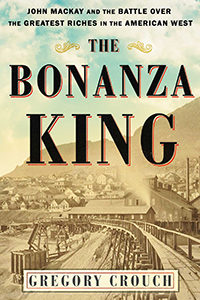
 July 2, 2018 – Our time machine strikes gold in Nevada’s Comstock Lode — a world-record vein so immensely valuable that it changed the destiny of the United States as the Civil War loomed. Our guide on this journey is Gregory Crouch who brings us:
July 2, 2018 – Our time machine strikes gold in Nevada’s Comstock Lode — a world-record vein so immensely valuable that it changed the destiny of the United States as the Civil War loomed. Our guide on this journey is Gregory Crouch who brings us:  .
. and the alpine memoir
and the alpine memoir  . He studied history at the United States Military Academy at West Point, completed U.S. Army Airborne and Ranger schools, and led two infantry platoons.
. He studied history at the United States Military Academy at West Point, completed U.S. Army Airborne and Ranger schools, and led two infantry platoons.
 June 18, 2018 – Our time machine travels back to the days of poodle skirts, I Like Ike and I Love Lucy. Once there, we’ll meet Kitty Tessler — a saucy, scheming socialite out to settle scores with snobs.
June 18, 2018 – Our time machine travels back to the days of poodle skirts, I Like Ike and I Love Lucy. Once there, we’ll meet Kitty Tessler — a saucy, scheming socialite out to settle scores with snobs. .
. , as “An absorbing tale of art, deception, romance, and forbidden desire.” She holds an MA from the University of Georgia and lives in Smyrna with her husband, also an English teacher, and their three rescue dogs.
, as “An absorbing tale of art, deception, romance, and forbidden desire.” She holds an MA from the University of Georgia and lives in Smyrna with her husband, also an English teacher, and their three rescue dogs.

 June 4, 2018 – Our time machine travels back to the Tudor and Stuart period of the British monarchy, to meet a prince on track to be the great King Henry the IX, had his life not been cut short. Our guide on this royal journey is Sarah Fraser, author of
June 4, 2018 – Our time machine travels back to the Tudor and Stuart period of the British monarchy, to meet a prince on track to be the great King Henry the IX, had his life not been cut short. Our guide on this royal journey is Sarah Fraser, author of  . Henry Stuart’s life — subject of the BBC 2 documentary The Best King We Never Had — is the last great forgotten Jacobean tale, lost in the turmoil of the Thirty Years’ War and sweeping changes taking place across Europe at the turn of the 17th Century.
. Henry Stuart’s life — subject of the BBC 2 documentary The Best King We Never Had — is the last great forgotten Jacobean tale, lost in the turmoil of the Thirty Years’ War and sweeping changes taking place across Europe at the turn of the 17th Century. , which in 2016 also became a New York Times ebook bestseller. She’s a writer and regular contributor on TV and radio, with a PhD in ribald Gaelic poetry.
, which in 2016 also became a New York Times ebook bestseller. She’s a writer and regular contributor on TV and radio, with a PhD in ribald Gaelic poetry.
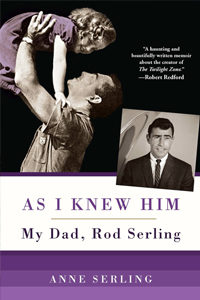
 May 21, 2018 – In this episode, our time machine welcomes aboard the daughter of an American national treasure: Rod Serling. Best known for his ominous exposition in TV’s groundbreaking anthology, The Twilight Zone, Serling also produced landmark screenplays such as Planet of the Apes, Seven Days in May, Playhouse 90’s The Velvet Alley, and Requiem for a Heavyweight.
May 21, 2018 – In this episode, our time machine welcomes aboard the daughter of an American national treasure: Rod Serling. Best known for his ominous exposition in TV’s groundbreaking anthology, The Twilight Zone, Serling also produced landmark screenplays such as Planet of the Apes, Seven Days in May, Playhouse 90’s The Velvet Alley, and Requiem for a Heavyweight. .
.
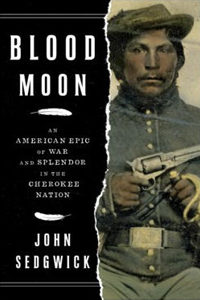
 May 7, 2018 – Our time machine travels back to meet rival Cherokee chiefs in the decades leading up to and through the American Civil War, when the supporters of John Ross and The Ridge engaged in a blood feud that led to war, the infamous Trail of Tears, and the devastation of a once-proud nation encompassing what today is several southern states.
May 7, 2018 – Our time machine travels back to meet rival Cherokee chiefs in the decades leading up to and through the American Civil War, when the supporters of John Ross and The Ridge engaged in a blood feud that led to war, the infamous Trail of Tears, and the devastation of a once-proud nation encompassing what today is several southern states. . John Sedgwick is the bestselling author of thirteen books, including
. John Sedgwick is the bestselling author of thirteen books, including  — his acclaimed account of the Alexander Hamilton-Aaron Burr duel — two novels, and the family memoir
— his acclaimed account of the Alexander Hamilton-Aaron Burr duel — two novels, and the family memoir  . You’ve seen his work in GQ, Newsweek, Vanity Fair, and The Atlantic.
. You’ve seen his work in GQ, Newsweek, Vanity Fair, and The Atlantic.
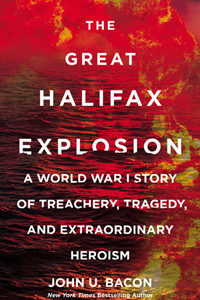
 April 23, 2018 – Our time machine travels back 100 years, to witness the split-second explosion that blew a chunk of Halifax, Nova Scotia off the map. On December 6, 1917, this key city in supplying the Allies in the Great War, suffered the largest man-made explosion prior to the bombs that ended World War Two — something that caught the attention of physicist Robert Oppenheimer, the “father of the atomic bomb.”
April 23, 2018 – Our time machine travels back 100 years, to witness the split-second explosion that blew a chunk of Halifax, Nova Scotia off the map. On December 6, 1917, this key city in supplying the Allies in the Great War, suffered the largest man-made explosion prior to the bombs that ended World War Two — something that caught the attention of physicist Robert Oppenheimer, the “father of the atomic bomb.” . John U. Bacon teaches at Northwestern University’s Medill School of Journalism and the University of Michigan. He’s written five New York Times bestsellers, including
. John U. Bacon teaches at Northwestern University’s Medill School of Journalism and the University of Michigan. He’s written five New York Times bestsellers, including  ,
,  , and,
, and,  .
.
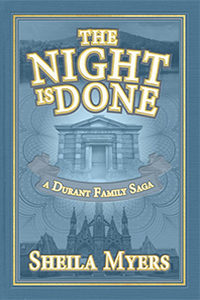
 April 9, 2018 – Our time machine travels back to 1931 to conclude the Durant Family Trilogy. Moving on from the Gilded Age, we’ll catch up with William and Ella, the adult children of Union Pacific Railroad tycoon Dr. Thomas C. Durant, in the final years of their complicated lives.
April 9, 2018 – Our time machine travels back to 1931 to conclude the Durant Family Trilogy. Moving on from the Gilded Age, we’ll catch up with William and Ella, the adult children of Union Pacific Railroad tycoon Dr. Thomas C. Durant, in the final years of their complicated lives. , as they had their comfortable lives in London shattered by an economic panic. Book 2,
, as they had their comfortable lives in London shattered by an economic panic. Book 2,  , saw the William and Ella locking horns, as their father continued to exert influence on their lives from beyond the grave. In the conclusion,
, saw the William and Ella locking horns, as their father continued to exert influence on their lives from beyond the grave. In the conclusion,  , William and Ella cast their eyes back on their lives, and confront the stark truth about their legacy and long-gone fortune.
, William and Ella cast their eyes back on their lives, and confront the stark truth about their legacy and long-gone fortune.

 March 26, 2018 – It’s a special episode, recorded live on the campus of
March 26, 2018 – It’s a special episode, recorded live on the campus of  . Visit her blog at
. Visit her blog at 
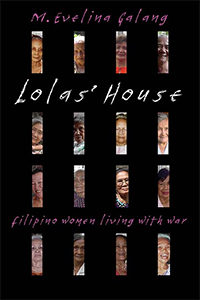
 March 12, 2018 – Our time machine travels back to the Philippines during the Japanese occupation the Second World War. Once in the South Pacific, we’ll bear solemn witness to crimes against women who have been denied the justice and compensation for the atrocities they suffered in the name of the emperor.
March 12, 2018 – Our time machine travels back to the Philippines during the Japanese occupation the Second World War. Once in the South Pacific, we’ll bear solemn witness to crimes against women who have been denied the justice and compensation for the atrocities they suffered in the name of the emperor. . The Imperial Japanese Army kidnapped over 1,000 Filipino women and girls, part of a staggering 400,000 women across forced Asia into sexual slavery. Incredibly, and to Japan’s shame, to this day their government denies the crimes of its wartime regime, unlike the heirs of their fascist Axis allies in Germany, where denying the Holocaust is a crime.
. The Imperial Japanese Army kidnapped over 1,000 Filipino women and girls, part of a staggering 400,000 women across forced Asia into sexual slavery. Incredibly, and to Japan’s shame, to this day their government denies the crimes of its wartime regime, unlike the heirs of their fascist Axis allies in Germany, where denying the Holocaust is a crime. . She directs the M.F.A. Creative Writing Program at the University of Miami and is core faculty and board member of Voices of Our Nations Arts Foundation (VONA). She wrote the novel,
. She directs the M.F.A. Creative Writing Program at the University of Miami and is core faculty and board member of Voices of Our Nations Arts Foundation (VONA). She wrote the novel,  , which The New York Times Book Review praised and named a notable book.
, which The New York Times Book Review praised and named a notable book.
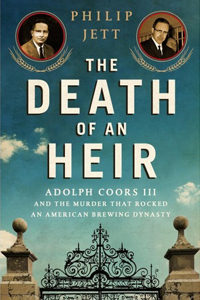
 February 26, 2018 – Our time machine travels to 1960 and pulls over at a secluded bridge on a lonely Colorado road. We’re there to witness a crime of greed and envy, when a bitter escaped convict with delusions of high IQ snatches the 44-year-old CEO of Coors as he makes his way to the family brewery.
February 26, 2018 – Our time machine travels to 1960 and pulls over at a secluded bridge on a lonely Colorado road. We’re there to witness a crime of greed and envy, when a bitter escaped convict with delusions of high IQ snatches the 44-year-old CEO of Coors as he makes his way to the family brewery. . Sitting beside us in our squad car as the kidnapper pounces is attorney Philip Jett, who brings us this chilling account of the Coors family’s gilded American dream that turned into a nightmare.
. Sitting beside us in our squad car as the kidnapper pounces is attorney Philip Jett, who brings us this chilling account of the Coors family’s gilded American dream that turned into a nightmare.

 February 12, 2018 – For Black History Month, our time machine piles readers 4 to 8 years old into their car seats, and introduces them to a hero who overcame segregation and many other obstacles, to pursue his artistic dream — and that’s after being a star NFL player.
February 12, 2018 – For Black History Month, our time machine piles readers 4 to 8 years old into their car seats, and introduces them to a hero who overcame segregation and many other obstacles, to pursue his artistic dream — and that’s after being a star NFL player. . In it, young readers will find the story of a pro-football player, brought to life with by Sandra’s prose and Bryan Collier’s watercolors. Bryan Collier is an award-winning illustrator, whose art won first place in a 1985 congressional competition and later earned him a scholarship to New York City’s Pratt Institute.
. In it, young readers will find the story of a pro-football player, brought to life with by Sandra’s prose and Bryan Collier’s watercolors. Bryan Collier is an award-winning illustrator, whose art won first place in a 1985 congressional competition and later earned him a scholarship to New York City’s Pratt Institute.
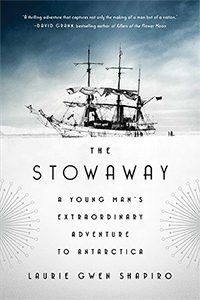
 January 29, 2018 – Our time machine heads south to the other land down under for a chilly Jazz Age adventure. Our guide on this journey is Laurie Gwen Shapiro who brings us the story of a scrappy Polish-American kid from Manhattan’s Lower East Side, who explores the Roaring ’20s final frontier. Her book is
January 29, 2018 – Our time machine heads south to the other land down under for a chilly Jazz Age adventure. Our guide on this journey is Laurie Gwen Shapiro who brings us the story of a scrappy Polish-American kid from Manhattan’s Lower East Side, who explores the Roaring ’20s final frontier. Her book is  . It’s the spectacular, true story of Billy Gawronski who snuck onto the flagship of famed explorer Richard E. Byrd, demanding a place among the crew and on the pages of history.
. It’s the spectacular, true story of Billy Gawronski who snuck onto the flagship of famed explorer Richard E. Byrd, demanding a place among the crew and on the pages of history.
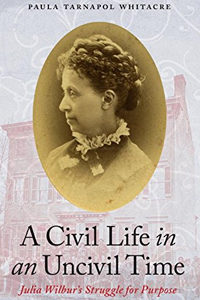
 January 15, 2018 – Our time machine travels back to the Union-occupied city of Alexandria, Virginia, to get an abolitionist woman’s perspective during America’s Civil War. Our guide on this journey is Paula Tarnapol Whitaker, author of
January 15, 2018 – Our time machine travels back to the Union-occupied city of Alexandria, Virginia, to get an abolitionist woman’s perspective during America’s Civil War. Our guide on this journey is Paula Tarnapol Whitaker, author of  . Paula met up with us in Virginia at the
. Paula met up with us in Virginia at the 
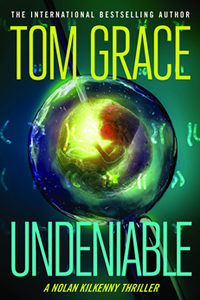
 January 1, 2018 – Happy New Year, history lovers! To kick off 2018, we welcome thriller author Tom Grace to discuss the sixth novel in his series featuring ex-Navy SEAL Nolan Kilkenny:
January 1, 2018 – Happy New Year, history lovers! To kick off 2018, we welcome thriller author Tom Grace to discuss the sixth novel in his series featuring ex-Navy SEAL Nolan Kilkenny:  . Tom’s novels feature cutting-edge technology, and we discuss how DNA science is solving historical mysteries. Did Adolf Hitler have a son? Was Warren G. Harding our first black president?
. Tom’s novels feature cutting-edge technology, and we discuss how DNA science is solving historical mysteries. Did Adolf Hitler have a son? Was Warren G. Harding our first black president?
 December 25, 2017 – This week, our time machine visits 1939, clicks on the radio, and listens to The Campbell Playhouse production of A Christmas Carol hosted by Orson Welles and staring Lionel Barrymore as Ebenezer Scrooge. When Charles Dickens published the story in 1843, he did so as what we’d call social commentary, reflecting the soul-searching of his fellow Britons about the true meaning of Christmas.
December 25, 2017 – This week, our time machine visits 1939, clicks on the radio, and listens to The Campbell Playhouse production of A Christmas Carol hosted by Orson Welles and staring Lionel Barrymore as Ebenezer Scrooge. When Charles Dickens published the story in 1843, he did so as what we’d call social commentary, reflecting the soul-searching of his fellow Britons about the true meaning of Christmas.
 December 18, 2017 – This week — just in time to get stuffed into your young reader’s stocking — we travel back to a familiar location, at a pivotal moment in the American Revolution. The year is 1780, when one of the greatest heroes of the Continental Army — General Benedict Arnold — decides to betray the patriot cause by surrendering West Point to the British with the help of British spymaster Major John André.
December 18, 2017 – This week — just in time to get stuffed into your young reader’s stocking — we travel back to a familiar location, at a pivotal moment in the American Revolution. The year is 1780, when one of the greatest heroes of the Continental Army — General Benedict Arnold — decides to betray the patriot cause by surrendering West Point to the British with the help of British spymaster Major John André. . It’s the real history behind heavily dramatized stories such as AMC’s Turn: Washington’s Spies and the smash Broadway musical Hamilton.
. It’s the real history behind heavily dramatized stories such as AMC’s Turn: Washington’s Spies and the smash Broadway musical Hamilton. , Book One of the Rough Romance Trilogy, racked up six honors including the Society of Children’s Book Writers and Illustrators Spark Award.
, Book One of the Rough Romance Trilogy, racked up six honors including the Society of Children’s Book Writers and Illustrators Spark Award.  , her third nonfiction picture book, earned four awards including Booklist Top Ten Biography for Youth.
, her third nonfiction picture book, earned four awards including Booklist Top Ten Biography for Youth.
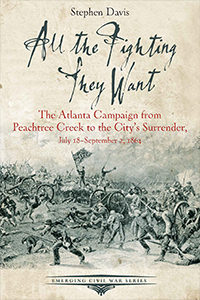
 December 11, 2017 – This week, our time machine travels back to the American Civil War in
December 11, 2017 – This week, our time machine travels back to the American Civil War in  . Our guide on this journey is Stephen Davis, a longtime Atlantan and Civil War enthusiast since the fourth grade. All the Fighting They Want
. Our guide on this journey is Stephen Davis, a longtime Atlantan and Civil War enthusiast since the fourth grade. All the Fighting They Want serves as a companion to his previous paperback,
serves as a companion to his previous paperback,  .
. , and 2012’s
, and 2012’s  .
.
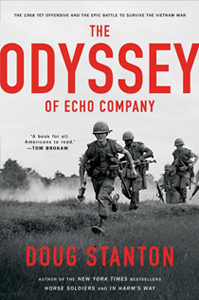
 December 4, 2017 – This week, our time machine travels back 50 years to one of the Vietnam War’s massive set pieces: The Tet Offensive. This series of simultaneous attacks by the communist North on 36 cities, aimed to weaken support both within the Vietnamese republic in the South and across the Pacific in the United States.
December 4, 2017 – This week, our time machine travels back 50 years to one of the Vietnam War’s massive set pieces: The Tet Offensive. This series of simultaneous attacks by the communist North on 36 cities, aimed to weaken support both within the Vietnamese republic in the South and across the Pacific in the United States. . Mr. Stanton is a journalist, lecturer, screenwriter, and the author of New York Times bestsellers
. Mr. Stanton is a journalist, lecturer, screenwriter, and the author of New York Times bestsellers  . He also brought us
. He also brought us  , which is the basis for a Jerry Bruckheimer film coming in 2018.
, which is the basis for a Jerry Bruckheimer film coming in 2018. .
.
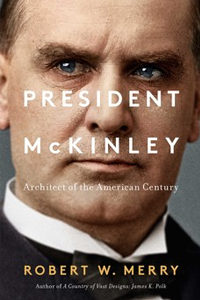

 . You’ve seen Mr. Merry was editor of The National Interest from 2011 to 2013, and previously served as a Washington correspondent for the Wall Street Journal and executive editor of the Congressional Quarterly. He’s now editor at The American Conservative.
. You’ve seen Mr. Merry was editor of The National Interest from 2011 to 2013, and previously served as a Washington correspondent for the Wall Street Journal and executive editor of the Congressional Quarterly. He’s now editor at The American Conservative. , on James K Polk, and
, on James K Polk, and  .
. .
.
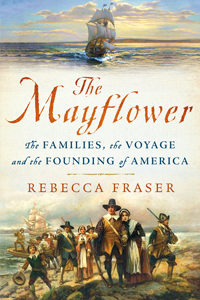

 . The daughter of noted British historian Lady Antonia Fraser and former president of the Brontë Society in the U.K. Her previous books include
. The daughter of noted British historian Lady Antonia Fraser and former president of the Brontë Society in the U.K. Her previous books include  .
.
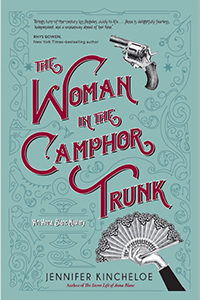 November 13, 2017 – This week, we’ll see a familiar face in the passenger seat of our time machine under a big cartwheel hat, as we travel back to 1908 Los Angeles. Our guest is Jennifer Kincheloe, here to chat about her second novel,
November 13, 2017 – This week, we’ll see a familiar face in the passenger seat of our time machine under a big cartwheel hat, as we travel back to 1908 Los Angeles. Our guest is Jennifer Kincheloe, here to chat about her second novel,  .
. , in the archives at HistoryAuthor.com or wherever you’re listening, and find our guest online at
, in the archives at HistoryAuthor.com or wherever you’re listening, and find our guest online at 
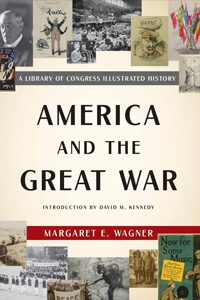
 November 6, 2017 – This week, our time machine travels back to a time when the United States fought its first major overseas conflict, joining a fight idealized as making the world safe for democracy. Our guide on this journey is Margaret E. Wagner, a senior writer/editor in the Library of Congress Publishing Office. She brings us
November 6, 2017 – This week, our time machine travels back to a time when the United States fought its first major overseas conflict, joining a fight idealized as making the world safe for democracy. Our guide on this journey is Margaret E. Wagner, a senior writer/editor in the Library of Congress Publishing Office. She brings us  .
. ;
;  , and,
, and,  . She’s also co-author of
. She’s also co-author of  .
.
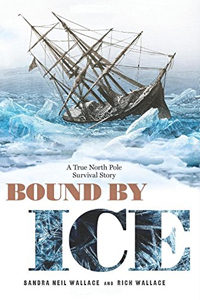
 October 30, 2017 – This week, our time machine bolts on its studded snow tires for a freezing journey to the North Pole — a trip we’ll make long before GPS, cell phones, or Gortex gloves — with Gilded Age explorers aboard the schooner USS Jeannette. Returning to the show are husband-and-wife writing team Rich Wallace and Sandra Neil Wallace. They last joined us to discuss their book
October 30, 2017 – This week, our time machine bolts on its studded snow tires for a freezing journey to the North Pole — a trip we’ll make long before GPS, cell phones, or Gortex gloves — with Gilded Age explorers aboard the schooner USS Jeannette. Returning to the show are husband-and-wife writing team Rich Wallace and Sandra Neil Wallace. They last joined us to discuss their book  . You can hear that chat
. You can hear that chat  , and it’s aimed at readers nine to eighteen years of age, although I enjoyed it even at a good distance beyond my high school graduation.
, and it’s aimed at readers nine to eighteen years of age, although I enjoyed it even at a good distance beyond my high school graduation.

 October 23, 2017 – This week, our time machine shuttles back and forth between the 1880s and the 1980s, with a story anchored at the ends of family trees and DNA strands. Our guide on this journey is Fiona Davis, author of
October 23, 2017 – This week, our time machine shuttles back and forth between the 1880s and the 1980s, with a story anchored at the ends of family trees and DNA strands. Our guide on this journey is Fiona Davis, author of  . It builds a bridge between two women, united across a century by the legendary Dakota apartment building.
. It builds a bridge between two women, united across a century by the legendary Dakota apartment building. , about the famed Barbizon Hotel for Women. Born in Canada and raised in places as far-flung as Utah, Texas, and New Jersey, our guest worked for years as an actress on Broadway, and attended both the College of William & Mary and the Columbia University School of Journalism.
, about the famed Barbizon Hotel for Women. Born in Canada and raised in places as far-flung as Utah, Texas, and New Jersey, our guest worked for years as an actress on Broadway, and attended both the College of William & Mary and the Columbia University School of Journalism.
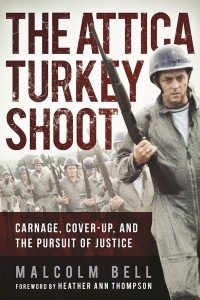
 October 16, 2017 – This week, our time machine travels back to a date of infamy: September 9, 1971, when inmates seized control of Attica Correctional Facility in Western New York State. A four-day standoff resulted, ending when police and corrections officers stormed Attica, leaving 29 inmates and 10 guards dead and dying. In the immediate aftermath, newspapers and television reported the state-sanctioned version of events: The prisoners had murdered the hostages.
October 16, 2017 – This week, our time machine travels back to a date of infamy: September 9, 1971, when inmates seized control of Attica Correctional Facility in Western New York State. A four-day standoff resulted, ending when police and corrections officers stormed Attica, leaving 29 inmates and 10 guards dead and dying. In the immediate aftermath, newspapers and television reported the state-sanctioned version of events: The prisoners had murdered the hostages. . While serving as a New York State prosecutor, Bell blew the whistle on the Empire State’s refusal to hold law enforcement officers accountable for the extensive torture and murder that they committed during the riots.
. While serving as a New York State prosecutor, Bell blew the whistle on the Empire State’s refusal to hold law enforcement officers accountable for the extensive torture and murder that they committed during the riots.
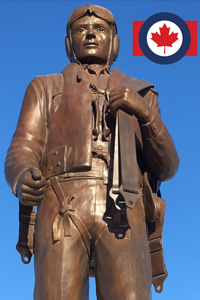 October 9, 2017 – This week, our time machine flies up to the Great White North — the very heart of Canada — for a road trip to Brandon, Manitoba’s Commonwealth Air Training Plan Museum, a national historic site dedicated to the memory of the men who fought and died in the skies during the Second World War.
October 9, 2017 – This week, our time machine flies up to the Great White North — the very heart of Canada — for a road trip to Brandon, Manitoba’s Commonwealth Air Training Plan Museum, a national historic site dedicated to the memory of the men who fought and died in the skies during the Second World War.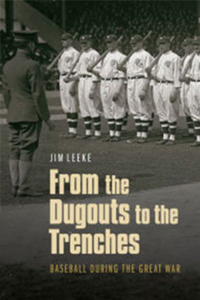
 October 2, 2017 – Today, our time machine follows professional baseball players, onto the battlefields of Europe in World War One a century ago. We hear the story about how the game, players, fans and the War Department clash in
October 2, 2017 – Today, our time machine follows professional baseball players, onto the battlefields of Europe in World War One a century ago. We hear the story about how the game, players, fans and the War Department clash in  , by author Jim Leeke. Jim is a contributor to the Society for American Baseball Research Baseball Biography Project, as well as the writer or editor of several books on U.S. and military history.
, by author Jim Leeke. Jim is a contributor to the Society for American Baseball Research Baseball Biography Project, as well as the writer or editor of several books on U.S. and military history.
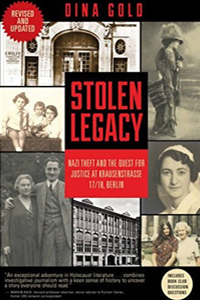
 September 25, 2017 – This week, our time machine follows one woman’s modern quest to recover property stolen by Nazi Germany. It was only a single theft in the National Socialist State’s vast, systematic plundering of Jewish wealth, but the Wolff family’s story quickly becomes our story, and we find ourselves rooting for justice.
September 25, 2017 – This week, our time machine follows one woman’s modern quest to recover property stolen by Nazi Germany. It was only a single theft in the National Socialist State’s vast, systematic plundering of Jewish wealth, but the Wolff family’s story quickly becomes our story, and we find ourselves rooting for justice. . Raised in the U.K. and is now an American citizen living in the nation’s capital, she sits on the board of the Jewish Community Center and just completed her stint as co-chair on the council of the Washington Jewish Film Festival. A senior editor at Moment magazine, she started her career in London as a financial journalist after postgraduate studies at Corpus Christi College, Oxford. Later, at the BBC, she worked as an investigative reporter and television producer.
. Raised in the U.K. and is now an American citizen living in the nation’s capital, she sits on the board of the Jewish Community Center and just completed her stint as co-chair on the council of the Washington Jewish Film Festival. A senior editor at Moment magazine, she started her career in London as a financial journalist after postgraduate studies at Corpus Christi College, Oxford. Later, at the BBC, she worked as an investigative reporter and television producer.
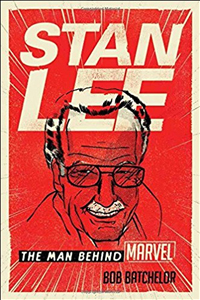 September 18, 2017 – Hello, true believers! This week, we meet a national treasure who serves as a bridge from the Golden Age of comic books to today’s blockbuster, multi-film CGI universes. It’s the origin story of the man who — along with talented co-creators like artists Jack Kirby and Joe Simon — created such iconic characters as Spider-Man, the Fantastic Four, the Incredible Hulk, and Iron Man.
September 18, 2017 – Hello, true believers! This week, we meet a national treasure who serves as a bridge from the Golden Age of comic books to today’s blockbuster, multi-film CGI universes. It’s the origin story of the man who — along with talented co-creators like artists Jack Kirby and Joe Simon — created such iconic characters as Spider-Man, the Fantastic Four, the Incredible Hulk, and Iron Man. . Bob is a cultural historian who has written or edited more than two dozen books on popular culture and American literature, including books about John Updike, The Great Gatsby, and Mad Men. He lives in Oxford, Ohio, and teaches at Miami University.
. Bob is a cultural historian who has written or edited more than two dozen books on popular culture and American literature, including books about John Updike, The Great Gatsby, and Mad Men. He lives in Oxford, Ohio, and teaches at Miami University.
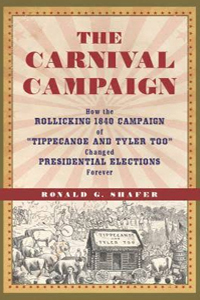
 September 11, 2017 – his week, our time machine travels back to 1840 for a belt of hard cider courtesy of presidential candidate — William Henry Harrison. A hero in the War of 1812, “Old Tippecanoe” and served in a variety of public offices, before winning the Whig nomination and making a bid for the presidency with Virginia Democrat John Tyler.
September 11, 2017 – his week, our time machine travels back to 1840 for a belt of hard cider courtesy of presidential candidate — William Henry Harrison. A hero in the War of 1812, “Old Tippecanoe” and served in a variety of public offices, before winning the Whig nomination and making a bid for the presidency with Virginia Democrat John Tyler. .
.

 September 4, 2017 – This week, our time machine travels back to early 20th Century Eastern Europe, where we’ll meet ballerina Bronislava Nijinsky. Bronia was a remarkable dancer and woman, who charted a course for greatness despite the upheavals outside and inside her family. The Chosen Maiden blends fiction and fact seamlessly, while including cameos by giants of the period such as prima ballerina Anna Pavlova, Coco Chanel, and Pablo Picasso.
September 4, 2017 – This week, our time machine travels back to early 20th Century Eastern Europe, where we’ll meet ballerina Bronislava Nijinsky. Bronia was a remarkable dancer and woman, who charted a course for greatness despite the upheavals outside and inside her family. The Chosen Maiden blends fiction and fact seamlessly, while including cameos by giants of the period such as prima ballerina Anna Pavlova, Coco Chanel, and Pablo Picasso. .
. ,
,  ,
, 

 , and
, and  .
.

 August 28, 2017 – This week, our time machine takes us into Nazi-occupied France, to meet a bold patriot with a famous Uncle Charles. Her name was Genevieve de Gaulle, and she did the hard work of resistance behind enemy lines, that the general urged from exile.
August 28, 2017 – This week, our time machine takes us into Nazi-occupied France, to meet a bold patriot with a famous Uncle Charles. Her name was Genevieve de Gaulle, and she did the hard work of resistance behind enemy lines, that the general urged from exile. . It taps a rich historical well of interviews with family members, former associates, prominent historians, and never-before-seen papers written by de Gaulle herself, exploring her relationship as confidante and daughter figure to the legendary French patriot.
. It taps a rich historical well of interviews with family members, former associates, prominent historians, and never-before-seen papers written by de Gaulle herself, exploring her relationship as confidante and daughter figure to the legendary French patriot.
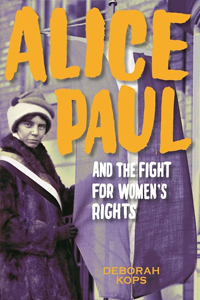
 August 21, 2017 – This week, our time machine heads back 100 years, to a time when surging numbers of women were demanding the right to vote. Our guest is Deborah Kops, who has written more than twenty nonfiction books for children and young adults, including her latest for ages 11 to 18. It’s
August 21, 2017 – This week, our time machine heads back 100 years, to a time when surging numbers of women were demanding the right to vote. Our guest is Deborah Kops, who has written more than twenty nonfiction books for children and young adults, including her latest for ages 11 to 18. It’s  .
.
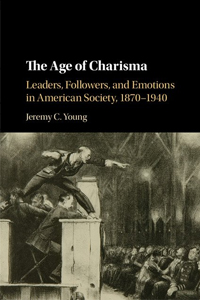
 August 14, 2017 – This week, our time machine travels back to the Gilded Age and pre-World War Two America, to hear the voices of those who held crowds enthralled. Our guide on this journey is Jeremy C. Young, and his book is,
August 14, 2017 – This week, our time machine travels back to the Gilded Age and pre-World War Two America, to hear the voices of those who held crowds enthralled. Our guide on this journey is Jeremy C. Young, and his book is,  . In it, Jeremy traces the modern relationship between leaders and supporters, back to a unique group of charismatic social movements prominent in the late-nineteenth and early-twentieth centuries.
. In it, Jeremy traces the modern relationship between leaders and supporters, back to a unique group of charismatic social movements prominent in the late-nineteenth and early-twentieth centuries.
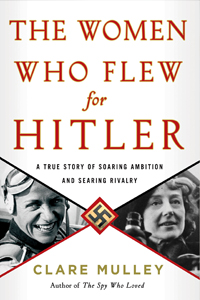
 August 7, 2017 – This week, our time machine takes to the skies of Germany as war clouds gather on the horizon, to meet two very different women, united in history by their determination to soar in the brand new — and male-dominated — world of human flight.This week, our time machine takes to the skies of Germany as war clouds gather on the horizon, to meet two very different women, united in history by their determination to soar in the brand new — and male-dominated — world of human flight. Hanna Reitsch and Melitta von Stauffenberg shared talent and courage, but held very different views on the Nazi state — partly because Melitta had a Jewish grandfather, which led her to support the Valkyrie plot, which very nearly succeeded in killing Hitler. Clare Mulley joins us from the U.K. to introduce
August 7, 2017 – This week, our time machine takes to the skies of Germany as war clouds gather on the horizon, to meet two very different women, united in history by their determination to soar in the brand new — and male-dominated — world of human flight.This week, our time machine takes to the skies of Germany as war clouds gather on the horizon, to meet two very different women, united in history by their determination to soar in the brand new — and male-dominated — world of human flight. Hanna Reitsch and Melitta von Stauffenberg shared talent and courage, but held very different views on the Nazi state — partly because Melitta had a Jewish grandfather, which led her to support the Valkyrie plot, which very nearly succeeded in killing Hitler. Clare Mulley joins us from the U.K. to introduce  . Her previous books are
. Her previous books are  , which won the Daily Mail Biographers’ Club Prize — and —
, which won the Daily Mail Biographers’ Club Prize — and —  . Granville was Britain’s first female special agent of the Second World War.
. Granville was Britain’s first female special agent of the Second World War.
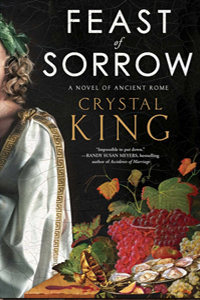
 July 31, 2017 – This week, our time machine travels back to the twenty-sixth year of Augustus Caesar’s reign, where we’ll sit down for countless scrumptious meals. Serving up this unique tale is debut author Crystal King who brings us
July 31, 2017 – This week, our time machine travels back to the twenty-sixth year of Augustus Caesar’s reign, where we’ll sit down for countless scrumptious meals. Serving up this unique tale is debut author Crystal King who brings us  . In it we meet infamous gourmet Marcus Gavius Apicius, credited as author of the oldest cookbook known to exist.
. In it we meet infamous gourmet Marcus Gavius Apicius, credited as author of the oldest cookbook known to exist.
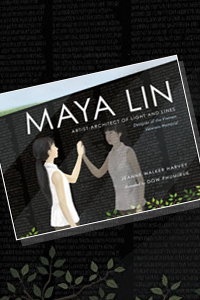
 July 24, 2017 – This week, we introduce children to the woman behind the Vietnam War Memorial in Washington D.C. The book (for young readers ages 4 to 8) is
July 24, 2017 – This week, we introduce children to the woman behind the Vietnam War Memorial in Washington D.C. The book (for young readers ages 4 to 8) is  , by San Francisco children’s author Jeanne Walker Harvey. Just how did a college student managed to win the design competition for what’s now the most frequently visited monument in the nation’s capital?
, by San Francisco children’s author Jeanne Walker Harvey. Just how did a college student managed to win the design competition for what’s now the most frequently visited monument in the nation’s capital? and
and  . You can enjoy those interviews in our archives wherever you’re listening now, or stream it at those HistoryAuthor.com pages.
. You can enjoy those interviews in our archives wherever you’re listening now, or stream it at those HistoryAuthor.com pages.
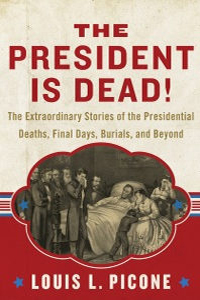
 July 17, 2017 – This week, the old-time machine leads a funeral procession, starting at George Washington’s crypt at Mount Vernon and ending over 200 years later paying out respects to Gerald R. Ford in Grand Rapids, Michigan. Returning for a second time-travel adventure is Louis Picone, author of:
July 17, 2017 – This week, the old-time machine leads a funeral procession, starting at George Washington’s crypt at Mount Vernon and ending over 200 years later paying out respects to Gerald R. Ford in Grand Rapids, Michigan. Returning for a second time-travel adventure is Louis Picone, author of:  .
. . This time, we met at another gem of presidential Jersey Shore history:
. This time, we met at another gem of presidential Jersey Shore history: 
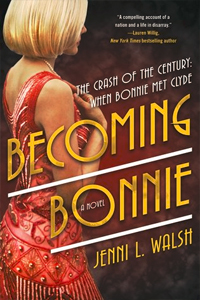
 July 10, 2017 – This week, infamous bank robbers Bonnie and Clyde carjack our time machine, and take us back to the days of jazz and Prohibition, years before their bullet-riddled fate in 1934. Just who were those two people as individuals, before they melted into an infamous and romanticized duo swaddled in myths? We’ll dive into Bonnie Parker’s origin story, by riding shotgun with debut novelist Jenni L. Walsh, author of
July 10, 2017 – This week, infamous bank robbers Bonnie and Clyde carjack our time machine, and take us back to the days of jazz and Prohibition, years before their bullet-riddled fate in 1934. Just who were those two people as individuals, before they melted into an infamous and romanticized duo swaddled in myths? We’ll dive into Bonnie Parker’s origin story, by riding shotgun with debut novelist Jenni L. Walsh, author of  , a book that boasts about, quote, “the crash of the century, when Bonnie met Clyde.”
, a book that boasts about, quote, “the crash of the century, when Bonnie met Clyde.”
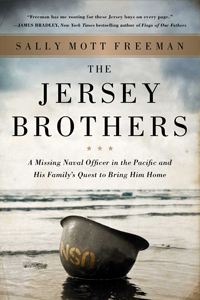

 .
.
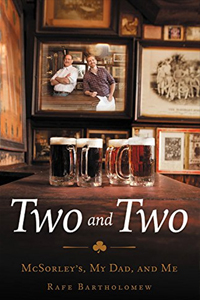
 June 26, 2017 – This week, our time machine visits New York City’s oldest bar,
June 26, 2017 – This week, our time machine visits New York City’s oldest bar,  , and it’s as an heir to Joseph Mitchell’s famous 1940 piece in the New Yorker:
, and it’s as an heir to Joseph Mitchell’s famous 1940 piece in the New Yorker:  , and was one of the original editors of Grantland. Find Rafe at
, and was one of the original editors of Grantland. Find Rafe at 
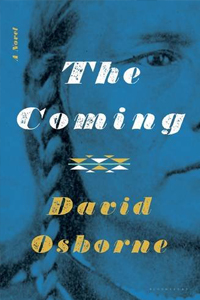
 June 19, 2017 – This week, our time machine joins up with legendary explorers Lewis and Clark, and traces the clash of cultures between the Europeans and Native American Nez Perce tribe through William Clark’s son, Daytime Smoke. Our guide on this journey is David Osborne, who shares his ambitious debut novel,
June 19, 2017 – This week, our time machine joins up with legendary explorers Lewis and Clark, and traces the clash of cultures between the Europeans and Native American Nez Perce tribe through William Clark’s son, Daytime Smoke. Our guide on this journey is David Osborne, who shares his ambitious debut novel,  .
.
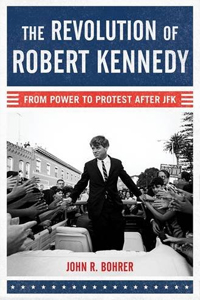
 June 12, 2017 – This week, we’ll visit the turbulent 1960s after President John F. Kennedy’s assassination. Once there, we’ll witness his younger brother and attorney general, Robert F. Kennedy, charting his own political path forward. With his foe LBJ in the White House, and only 38 years old, Bobby no longer has JFK’s career to put first, but his own.
June 12, 2017 – This week, we’ll visit the turbulent 1960s after President John F. Kennedy’s assassination. Once there, we’ll witness his younger brother and attorney general, Robert F. Kennedy, charting his own political path forward. With his foe LBJ in the White House, and only 38 years old, Bobby no longer has JFK’s career to put first, but his own. . You can follow him on Twitter
. You can follow him on Twitter 
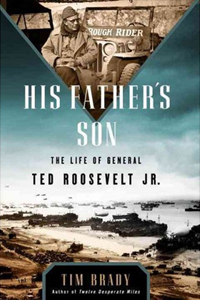
 June 5, 2017 – This day after this episode airs is June 6th, the anniversary of the D-Day landings in 1944. This week, our time machine hits those bloody beaches of Normandy, where we’ll meet the oldest man and highest-ranking officer to go ashore with the first wave: General Ted Roosevelt, Jr.
June 5, 2017 – This day after this episode airs is June 6th, the anniversary of the D-Day landings in 1944. This week, our time machine hits those bloody beaches of Normandy, where we’ll meet the oldest man and highest-ranking officer to go ashore with the first wave: General Ted Roosevelt, Jr. Tim Brady is a Peabody Award-winning writer whose works include
Tim Brady is a Peabody Award-winning writer whose works include  and
and  . He has written a number of PBS documentaries, and helped develop the series Liberty! The American Revolution. Check out his author pages at
. He has written a number of PBS documentaries, and helped develop the series Liberty! The American Revolution. Check out his author pages at 

 May 29, 2017 – We’re uploading this episode for Memorial Day 2017, to pay tribute to the men and women who gave their lives in service to the United States. Leading us on this trip into the past, is Kevin C. Fitzpatrick, a licensed New York City Sightseeing Guide, United States Marine veteran, and author of
May 29, 2017 – We’re uploading this episode for Memorial Day 2017, to pay tribute to the men and women who gave their lives in service to the United States. Leading us on this trip into the past, is Kevin C. Fitzpatrick, a licensed New York City Sightseeing Guide, United States Marine veteran, and author of  .
. and
and  .
.
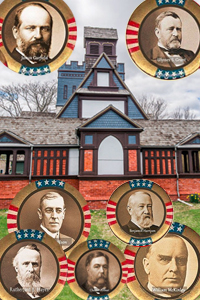 May 22, 2017 – This week, our time machine visits a small Jersey Shore town with big White House history. The spot is The Church of the Presidents in Long Branch, a spot where seven commanders-in-chief vacationed in the Gilded Age.
May 22, 2017 – This week, our time machine visits a small Jersey Shore town with big White House history. The spot is The Church of the Presidents in Long Branch, a spot where seven commanders-in-chief vacationed in the Gilded Age.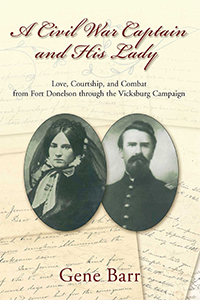
 May 15, 2017 – This week, for our 100th interview, our time machine visits some of the most heated fighting — political and on the battlefield — during the American Civil War. We’ll experience the great conflagration through the eyes of a soldier and his young love, whose father just happens to be a Democratic state senator, who begins to doubt Lincoln’s war effort as it drags on year after year.
May 15, 2017 – This week, for our 100th interview, our time machine visits some of the most heated fighting — political and on the battlefield — during the American Civil War. We’ll experience the great conflagration through the eyes of a soldier and his young love, whose father just happens to be a Democratic state senator, who begins to doubt Lincoln’s war effort as it drags on year after year. . You can find him on Twitter
. You can find him on Twitter 
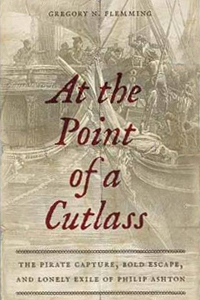
 May 8, 2017 – This week, our time machine hoists the Jolly Roger, that notorious black flag with a skull and crossbones that sent shivers down the spine of God-fearing men and woman on the high seas. Shortly after we set sail, we’ll meet Massachusetts fisherman Philip Ashton, whose capture and escape from pirates, earned him status as America’s real-life Robinson Crusoe.
May 8, 2017 – This week, our time machine hoists the Jolly Roger, that notorious black flag with a skull and crossbones that sent shivers down the spine of God-fearing men and woman on the high seas. Shortly after we set sail, we’ll meet Massachusetts fisherman Philip Ashton, whose capture and escape from pirates, earned him status as America’s real-life Robinson Crusoe. . You can get to know him by paying a visit to
. You can get to know him by paying a visit to 
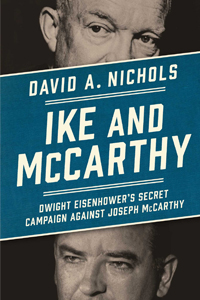
 May 1, 2017 – This week, our time machine touches down at the height of the Red Scare, in the Oval Office of President Dwight D. Eisenhower, whose public stance of ignoring Senator Joseph McCarthy’s descent into demagoguery — refusing even to mention his name — has long been cited by historians as proof that the old World War Two general just didn’t care.
May 1, 2017 – This week, our time machine touches down at the height of the Red Scare, in the Oval Office of President Dwight D. Eisenhower, whose public stance of ignoring Senator Joseph McCarthy’s descent into demagoguery — refusing even to mention his name — has long been cited by historians as proof that the old World War Two general just didn’t care. , by David A. Nichols, a leading expert on the Eisenhower presidency.
, by David A. Nichols, a leading expert on the Eisenhower presidency.
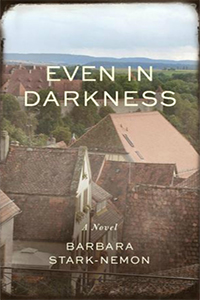
 April 24, 2017 – This week’s episode airs on Holocaust Remembrance Day, and features debut novelist Barbara Stark-Nemon’s ambitious novel,
April 24, 2017 – This week’s episode airs on Holocaust Remembrance Day, and features debut novelist Barbara Stark-Nemon’s ambitious novel,  . Spanning a century and three continents, Barbara tells the story of her real-life great-aunt, Kläre Kohler, from early years in a prosperous German-Jewish family, through an adulthood of love, two World Wars, a concentration camp, and an unconventional life in post-war Germany.
. Spanning a century and three continents, Barbara tells the story of her real-life great-aunt, Kläre Kohler, from early years in a prosperous German-Jewish family, through an adulthood of love, two World Wars, a concentration camp, and an unconventional life in post-war Germany. has racked up since publication.
has racked up since publication.

 April 17, 2017 – This week, our time machine attends the Gilded Age performances of a man who heralded the Borscht Belt, Vaudeville, and paved the way for performers from Mel Brooks to Barbra Streisand and Jerry Seinfeld. He did so by performing Jewish characters — for the first time — with dignity, humor, and emotional depth.
April 17, 2017 – This week, our time machine attends the Gilded Age performances of a man who heralded the Borscht Belt, Vaudeville, and paved the way for performers from Mel Brooks to Barbra Streisand and Jerry Seinfeld. He did so by performing Jewish characters — for the first time — with dignity, humor, and emotional depth. on Amazon, visit
on Amazon, visit 
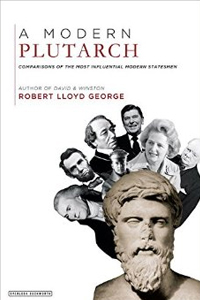
 April 3, 2017 – This week, our time machine compares some of the Western world’s big thinkers. Centuries ago Plutarch, the Father of Biography, wrote Lives of the Noble Greeks and Romans to reveal new insights about their careers by making comparisons. Robert Lloyd George applies this method to our time in
April 3, 2017 – This week, our time machine compares some of the Western world’s big thinkers. Centuries ago Plutarch, the Father of Biography, wrote Lives of the Noble Greeks and Romans to reveal new insights about their careers by making comparisons. Robert Lloyd George applies this method to our time in  , using the United States and United Kingdom, in place of Greece and Rome.
, using the United States and United Kingdom, in place of Greece and Rome. , contrasting his great-grandfather with Churchill.
, contrasting his great-grandfather with Churchill.
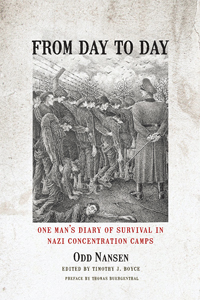
 March 27, 2017 – This week, our time machine goes inside a succession of Nazi Concentration camps, and views them through the great Norwegian statesman, Odd Nansen. Editing Nansen’s diaries — written painstakingly and smuggled out of the camps — is
March 27, 2017 – This week, our time machine goes inside a succession of Nazi Concentration camps, and views them through the great Norwegian statesman, Odd Nansen. Editing Nansen’s diaries — written painstakingly and smuggled out of the camps — is  .
. , you know that Norway holds a special place in our hearts, especially as it relates to their valiant resistance during the war.
, you know that Norway holds a special place in our hearts, especially as it relates to their valiant resistance during the war.
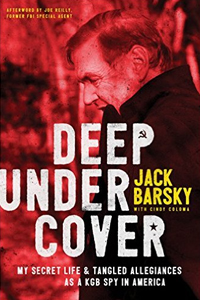 March 20, 2017 – This week, we meet a man born Albrecht Dittrich in East Germany, who infiltrated the U.S. as a KGB agent at the height of the Cold War — and in the decades since, Barsky’s life has taken all the twists and turns you’d expect from a fictional spy thriller. From ardent communist to patriotic American citizen. From unquestioning atheist, to agnostic, to the witnessing Christian he is today.
March 20, 2017 – This week, we meet a man born Albrecht Dittrich in East Germany, who infiltrated the U.S. as a KGB agent at the height of the Cold War — and in the decades since, Barsky’s life has taken all the twists and turns you’d expect from a fictional spy thriller. From ardent communist to patriotic American citizen. From unquestioning atheist, to agnostic, to the witnessing Christian he is today. . Learn more about his story at
. Learn more about his story at 

 March 13, 2017 – This week, we step into the Tardis, and travel back in time to a United Kingdom facing a rebellion in the late 1600s. The leader of this uprising to seize the crown is Charles II’s illegitimate son, James Scott, 1st Duke of Monmouth. He’s the sort of figure we love: One wronged by generations of falsehoods, until a dedicated historian tells the true story.
March 13, 2017 – This week, we step into the Tardis, and travel back in time to a United Kingdom facing a rebellion in the late 1600s. The leader of this uprising to seize the crown is Charles II’s illegitimate son, James Scott, 1st Duke of Monmouth. He’s the sort of figure we love: One wronged by generations of falsehoods, until a dedicated historian tells the true story. . Dr. Keay earned her PhD on court ceremonial in the reign of Charles II at the University of London, and is director of the Landmark Trust, a charity that rescues historic buildings and turns them into places for all of us to holiday among the memories of our past.
. Dr. Keay earned her PhD on court ceremonial in the reign of Charles II at the University of London, and is director of the Landmark Trust, a charity that rescues historic buildings and turns them into places for all of us to holiday among the memories of our past.
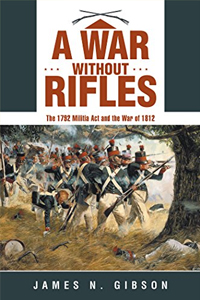
 March 6, 2017 – This week, our time machine travels back to the earliest days of the United States, to what’s sometimes called the Second War of independence: The War of 1812. For the first time in this fight against Great Britain, Congress used the Constitution’s power to declare war, and for the last time, the men doing the fighting supplied their own weapons — an idea that seems incredible today, where the term “militia” itself is given very different connotations than national defense.
March 6, 2017 – This week, our time machine travels back to the earliest days of the United States, to what’s sometimes called the Second War of independence: The War of 1812. For the first time in this fight against Great Britain, Congress used the Constitution’s power to declare war, and for the last time, the men doing the fighting supplied their own weapons — an idea that seems incredible today, where the term “militia” itself is given very different connotations than national defense. . Mr. Gibson was born into the U.S. space program through his father, and is himself an Aerospace Engineer. His resume features time with such giants in the field as Boeing and McDonnell Douglas, as well as work on the International Space Station and Space Shuttle programs.
. Mr. Gibson was born into the U.S. space program through his father, and is himself an Aerospace Engineer. His resume features time with such giants in the field as Boeing and McDonnell Douglas, as well as work on the International Space Station and Space Shuttle programs. , and
, and  . You can learn about these and his other works at
. You can learn about these and his other works at  .
.
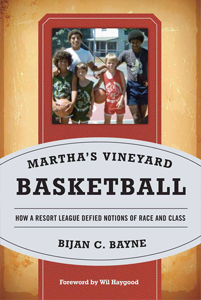

 .
. .
.

 February 20, 2017 – This week, we mark Presidents Day by putting some serious years and miles on the old DeLorean, starting with a visit to the Tidewater region of Virginia in the mid 1700’s, and ending over 200 years later across the ocean in Hawaii. In between, we’ll make a bunch of stops in Ohio, a handful in New York, and others scattered across the nation.
February 20, 2017 – This week, we mark Presidents Day by putting some serious years and miles on the old DeLorean, starting with a visit to the Tidewater region of Virginia in the mid 1700’s, and ending over 200 years later across the ocean in Hawaii. In between, we’ll make a bunch of stops in Ohio, a handful in New York, and others scattered across the nation. . From George Washington to Barack Obama, the book shares insights and history of the homes, highways and hospitals of the first 43 men who’ve served as our commander-in-chief.
. From George Washington to Barack Obama, the book shares insights and history of the homes, highways and hospitals of the first 43 men who’ve served as our commander-in-chief. . If love walking in the baby steps of our presidents, check out
. If love walking in the baby steps of our presidents, check out 

 February 13, 2016 – This week’s episode falls on the day we observe Lincoln’s birthday, so our time machine travels back to the final days of the American Civil War, as Abraham Lincoln turns his weary eyes forward to ending the rebellion and pushing for his vision of a new, reunited United States. The Great Emancipator does so by leaving the White House for his longest break since the war began, and spending them with General Ulysses S Grant’s command at City Point — known today as Hopewell — 130 miles south of the nation’s capital.
February 13, 2016 – This week’s episode falls on the day we observe Lincoln’s birthday, so our time machine travels back to the final days of the American Civil War, as Abraham Lincoln turns his weary eyes forward to ending the rebellion and pushing for his vision of a new, reunited United States. The Great Emancipator does so by leaving the White House for his longest break since the war began, and spending them with General Ulysses S Grant’s command at City Point — known today as Hopewell — 130 miles south of the nation’s capital. . Mr. Trudeau is the author of several books on the Civil war. His first,
. Mr. Trudeau is the author of several books on the Civil war. His first,  , which won the Civil War Round Table of New York’s prestigious Fletcher Pratt Award, and his fourth,
, which won the Civil War Round Table of New York’s prestigious Fletcher Pratt Award, and his fourth,  — a combat history of black troops in the Civil War — earned the Grady McWhiney Research Foundation’s Jerry Coffey Memorial Book Prize.
— a combat history of black troops in the Civil War — earned the Grady McWhiney Research Foundation’s Jerry Coffey Memorial Book Prize.

 February 6, 2017 – This week, in honor of Black History Month, our time machine travels back in time to meet a forgotten American hero in the fight for equality — a hero, with a bicycle. You may never have heard of Marshall “Major” Taylor, but this son of an Indiana Civil War veteran was the most popular athlete in America and heralded throughout the world, back at the height of the Jim Crow era in the early 20th Century.
February 6, 2017 – This week, in honor of Black History Month, our time machine travels back in time to meet a forgotten American hero in the fight for equality — a hero, with a bicycle. You may never have heard of Marshall “Major” Taylor, but this son of an Indiana Civil War veteran was the most popular athlete in America and heralded throughout the world, back at the height of the Jim Crow era in the early 20th Century. . Check out the
. Check out the 

 January 30, 2017 – This week, we mark the anniversary of the first Baseball Hall of Fame class on January 29, 1936. In that year, Ty Cobb earned 222 ballots, just four votes short of a unanimous decision, so the date gave us a chance to revisit one of our earliest interviews, and a book we cited often as a journalistic high water mark for history.
January 30, 2017 – This week, we mark the anniversary of the first Baseball Hall of Fame class on January 29, 1936. In that year, Ty Cobb earned 222 ballots, just four votes short of a unanimous decision, so the date gave us a chance to revisit one of our earliest interviews, and a book we cited often as a journalistic high water mark for history. . Mr. Leerhsen scratched the myth of Cobb as a belligerent, dimwitted racist and dirty player, and found he’d been maligned by a hack sportswriter named Al Stump, who smeared a man who was in fact an intellectual, lover of children, and supporter of baseball’s integration.
. Mr. Leerhsen scratched the myth of Cobb as a belligerent, dimwitted racist and dirty player, and found he’d been maligned by a hack sportswriter named Al Stump, who smeared a man who was in fact an intellectual, lover of children, and supporter of baseball’s integration.

 This week, our time machine turns on the four-wheel drive, as we hike into
This week, our time machine turns on the four-wheel drive, as we hike into  . Rob has written on sports, history, and the outdoors for over two decades. He’s formerly a contributing editor with Ohio Valley Outdoors magazine, and contributed to the history anthology, Rivers of Destiny.
. Rob has written on sports, history, and the outdoors for over two decades. He’s formerly a contributing editor with Ohio Valley Outdoors magazine, and contributed to the history anthology, Rivers of Destiny.

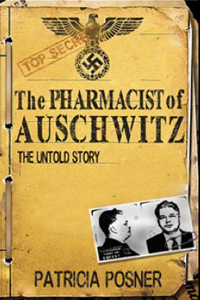 January 16, 2017 – This week, our time machine travels back to one of the past’s darkest corners, to meet Victor Capesius. Before the war, he was a friendly neighborhood druggist in Romania. But as World War Two progressed, this ethnic German rose from anonymity, to infamy, standing at the side of Dr. Josef Mengele, The Angel of Death.
January 16, 2017 – This week, our time machine travels back to one of the past’s darkest corners, to meet Victor Capesius. Before the war, he was a friendly neighborhood druggist in Romania. But as World War Two progressed, this ethnic German rose from anonymity, to infamy, standing at the side of Dr. Josef Mengele, The Angel of Death. . Together with her husband,
. Together with her husband,  ,
,  , and most recently,
, and most recently,  . (Enjoy our interview on that title
. (Enjoy our interview on that title  .
.
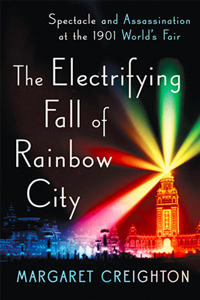
 January 9, 2017 – This week, our time machine whisks us back the Pan-American Exposition, a Gilded Age world’s fair powered by the newly harnessed power of electricity. “The Pan” covered 350 acres near Niagara Falls, and heralded the wonders of the 20th Century. But it also featured lingering stereotypes of a pre-flight world, and the tragic assassination of President William McKinley — America’s most beloved chief executive since Abraham Lincoln.
January 9, 2017 – This week, our time machine whisks us back the Pan-American Exposition, a Gilded Age world’s fair powered by the newly harnessed power of electricity. “The Pan” covered 350 acres near Niagara Falls, and heralded the wonders of the 20th Century. But it also featured lingering stereotypes of a pre-flight world, and the tragic assassination of President William McKinley — America’s most beloved chief executive since Abraham Lincoln. . You may have enjoyed her previous book,
. You may have enjoyed her previous book,  , which was up for the Lincoln Prize.
, which was up for the Lincoln Prize.

 January 2, 2017 – Hello, Happy New Year! This week, our time machine turns tower crane, as best-selling author and historian Hugh Howard introduces us to two men whose vision for building shaped the 20th Century. His book is,
January 2, 2017 – Hello, Happy New Year! This week, our time machine turns tower crane, as best-selling author and historian Hugh Howard introduces us to two men whose vision for building shaped the 20th Century. His book is,  .
. .
. ;
;  ;
;  ; and the classic
; and the classic  .
.
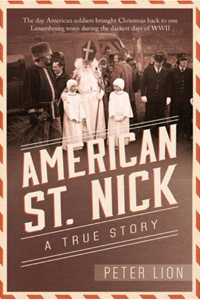
 December 21, 2016 – We’re uploading our Monday, December 26, 2016, episode a little bit ahead of schedule — call it an early Christmas gift. Our guest is Peter Lion, who brings us
December 21, 2016 – We’re uploading our Monday, December 26, 2016, episode a little bit ahead of schedule — call it an early Christmas gift. Our guest is Peter Lion, who brings us 
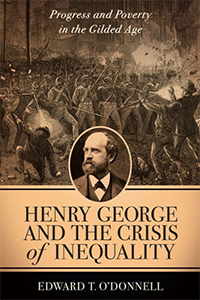
 December 19, 2016 – This week, our time machine swerves Into the Past Lane. Our guest is, Edward T. O’Donnell, host of the Into the Past Lane podcast and author of
December 19, 2016 – This week, our time machine swerves Into the Past Lane. Our guest is, Edward T. O’Donnell, host of the Into the Past Lane podcast and author of  . You may not know who Henry George is, but his ideas swirled around the campaign for president throughout the recent election, and his approach to solving political and economic problems are timeless.
. You may not know who Henry George is, but his ideas swirled around the campaign for president throughout the recent election, and his approach to solving political and economic problems are timeless.

 December 12, 2016 – This week, our time machine goes looking for America on the New Jersey Turnpike, and finds it at the birthplace of Ben Franklin, the Constitution, and cheesesteaks. We previously visited the City of Brotherly Love for our interview at
December 12, 2016 – This week, our time machine goes looking for America on the New Jersey Turnpike, and finds it at the birthplace of Ben Franklin, the Constitution, and cheesesteaks. We previously visited the City of Brotherly Love for our interview at  . And if you purchase your copy through
. And if you purchase your copy through 

 .
. .
.
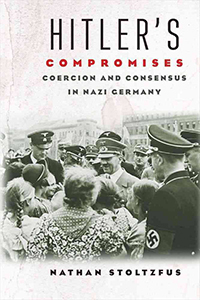
 November 28, 2016 – This week, our time machine touches down during Adolf Hitler’s reign in Germany, to answer a big question: How? How did this failed Austrian painter — a little-noticed corporal in the Great War — persuade the German people in droves to follow him into the abyss of total war?
November 28, 2016 – This week, our time machine touches down during Adolf Hitler’s reign in Germany, to answer a big question: How? How did this failed Austrian painter — a little-noticed corporal in the Great War — persuade the German people in droves to follow him into the abyss of total war? . Of course, none of this is to soften the image of Hitler as evil or excuse his crimes, but to give us a deeper understanding about how he seduced a nation.
. Of course, none of this is to soften the image of Hitler as evil or excuse his crimes, but to give us a deeper understanding about how he seduced a nation. .
.

 November 21, 2016 – The Flushing Remonstrance of 1657, a precursor to our own First Amendment protections of religious liberty. The Spaldeen we discussed in Geoff Griffin’s
November 21, 2016 – The Flushing Remonstrance of 1657, a precursor to our own First Amendment protections of religious liberty. The Spaldeen we discussed in Geoff Griffin’s  s, now in paperback.
s, now in paperback. .
.
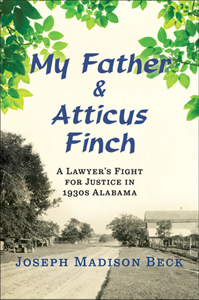
 November 14, 2016 – This week, our time machine may sound like it’s taking a sideways journey into the fictional world of Harper Lee’s iconic book,
November 14, 2016 – This week, our time machine may sound like it’s taking a sideways journey into the fictional world of Harper Lee’s iconic book,  . We touch down in 1930’s Alabama, and find a small town rocked when a black man is charged with raping a white woman. Only one local lawyer dares to defend the accused. That man was Foster Beck, and his son, Joseph Madison Beck, joins us to tell this eerily familiar tale.
. We touch down in 1930’s Alabama, and find a small town rocked when a black man is charged with raping a white woman. Only one local lawyer dares to defend the accused. That man was Foster Beck, and his son, Joseph Madison Beck, joins us to tell this eerily familiar tale. : A Lawyer’s Fight for Justice
: A Lawyer’s Fight for Justice in 1930s Alabama
in 1930s Alabama
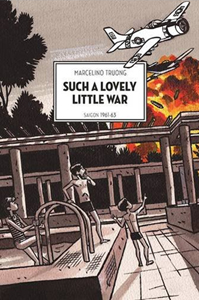
 November 7, 2016 – This week, we bring you our first book in a graphic format, and our first guest time-traveling with us from France. Marcelino Truong is author and illustrator of
November 7, 2016 – This week, we bring you our first book in a graphic format, and our first guest time-traveling with us from France. Marcelino Truong is author and illustrator of  . This graphic memoir shows us America’s early involvement in the Vietnam War, through the eyes of young Marcelino, the son of a Vietnamese diplomat and his French-born wife — whose bipolar disorder adds another dimension of conflict to the family’s life.
. This graphic memoir shows us America’s early involvement in the Vietnam War, through the eyes of young Marcelino, the son of a Vietnamese diplomat and his French-born wife — whose bipolar disorder adds another dimension of conflict to the family’s life.
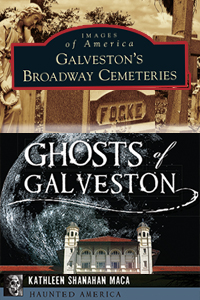
 October 31, 2016 – This week, is Halloween, so we’re piling into the Munsters Car, cranking up the
October 31, 2016 – This week, is Halloween, so we’re piling into the Munsters Car, cranking up the 
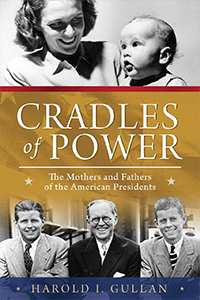
 October 24, 2016 – This week, with an eye on the upcoming U.S. presidential election, our time machine visits the childhood of the 43 bouncing baby boys who’ve served in the Oval Office — which, yes, means changing Grover Cleveland’s diaper on two, non-consecutive occasions.
October 24, 2016 – This week, with an eye on the upcoming U.S. presidential election, our time machine visits the childhood of the 43 bouncing baby boys who’ve served in the Oval Office — which, yes, means changing Grover Cleveland’s diaper on two, non-consecutive occasions. . There have been so many great authors writing about first ladies, including Feather S. Foster, who you heard
. There have been so many great authors writing about first ladies, including Feather S. Foster, who you heard  . Yet you’ll search in vain to find a book about the mothers and fathers of our presidents. This week’s guest, fills that space on our bookshelves.
. Yet you’ll search in vain to find a book about the mothers and fathers of our presidents. This week’s guest, fills that space on our bookshelves. , as well as,
, as well as,  . And, with an eye on Election Day 2016, you might also want to check out his title,
. And, with an eye on Election Day 2016, you might also want to check out his title,  .
.
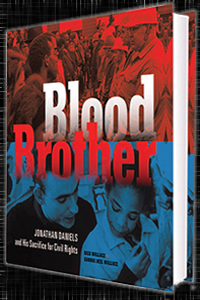
 October 17, 2016 – This week, our time machine travels back to 1965, where we’ll meet Jonathan Daniels — a white seminary student who answered Rev. Martin Luther King Jr’s call to help with voter registration in Loundes County, Alabama. After the voting rights marches, Daniels remained to assist civil rights workers — and gave his life saving black teenager Ruby Sales from a shotgun blast. Today, you can find Dr. Sales at
October 17, 2016 – This week, our time machine travels back to 1965, where we’ll meet Jonathan Daniels — a white seminary student who answered Rev. Martin Luther King Jr’s call to help with voter registration in Loundes County, Alabama. After the voting rights marches, Daniels remained to assist civil rights workers — and gave his life saving black teenager Ruby Sales from a shotgun blast. Today, you can find Dr. Sales at  .
.

 October 10, 2016 – This week, our time machine returns to the days of the Revolutionary War, and views it through the eyes of Isabel and Curzon, two of the African-American children held in slavery. Laurie Halse Anderson’s trilogy,
October 10, 2016 – This week, our time machine returns to the days of the Revolutionary War, and views it through the eyes of Isabel and Curzon, two of the African-American children held in slavery. Laurie Halse Anderson’s trilogy,  , includes the books Chains, Forge, and the just-released blistering conclusion, Ashes.
, includes the books Chains, Forge, and the just-released blistering conclusion, Ashes.

 October 3, 2016 – This week, our time machine has a familiar face in the passenger seat. It’s Paul Kahan,
October 3, 2016 – This week, our time machine has a familiar face in the passenger seat. It’s Paul Kahan, . From abject poverty to undisputed political boss of Pennsylvania — no easy feat in the notoriously fractious Keystone State — Simon Cameron served as senator, and ultimately Abraham Lincoln’s Secretary of War as the nation tore itself apart over slavery, at the outset of the Civil War.
. From abject poverty to undisputed political boss of Pennsylvania — no easy feat in the notoriously fractious Keystone State — Simon Cameron served as senator, and ultimately Abraham Lincoln’s Secretary of War as the nation tore itself apart over slavery, at the outset of the Civil War.
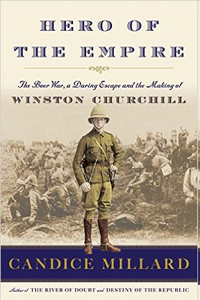
 September 26, 2016 – This week, our time machine spins us back to Boer War in the twilight of the 19th Century, when the republics that preceded today’s South Africa fought the British Empire over gold and diamonds. While there, we’ll see a familiar face from World War Two forty years later. The name Sir Winston Leonard Spencer Churchill invokes the balding, cigar-chomping, British bulldog who stared down Hitler across the English Channel. So it’s easy to forget that he was a soldier once, and young.
September 26, 2016 – This week, our time machine spins us back to Boer War in the twilight of the 19th Century, when the republics that preceded today’s South Africa fought the British Empire over gold and diamonds. While there, we’ll see a familiar face from World War Two forty years later. The name Sir Winston Leonard Spencer Churchill invokes the balding, cigar-chomping, British bulldog who stared down Hitler across the English Channel. So it’s easy to forget that he was a soldier once, and young. . Her previous books are best-sellers The River of Doubt: Theodore Roosevelt’s Darkest Journey, and Destiny of the Republic: A Tale of Madness, Medicine and the Murder of a President, covering the man the President James A.
. Her previous books are best-sellers The River of Doubt: Theodore Roosevelt’s Darkest Journey, and Destiny of the Republic: A Tale of Madness, Medicine and the Murder of a President, covering the man the President James A.  . You can also listen to
. You can also listen to  .
.

 September 19, 2016 – This week, our time machine makes a return visit to 1870s, to check back in on Union Pacific Railroad tycoon Dr. Thomas C. Durant, and his children, William and Ella. We first met the Durants when
September 19, 2016 – This week, our time machine makes a return visit to 1870s, to check back in on Union Pacific Railroad tycoon Dr. Thomas C. Durant, and his children, William and Ella. We first met the Durants when 
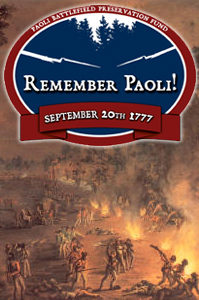 September 12, 2016 – It’s important to actually walk the earth where a given historical event occurred. This week, we’ll do just that at the Paoli Battlefield Historical Park & Paoli Memorial Grounds, just under an hour west of Philadelphia. Our guide is Jim Christ, vice president of the Paoli Battlefield Preservation Fund.
September 12, 2016 – It’s important to actually walk the earth where a given historical event occurred. This week, we’ll do just that at the Paoli Battlefield Historical Park & Paoli Memorial Grounds, just under an hour west of Philadelphia. Our guide is Jim Christ, vice president of the Paoli Battlefield Preservation Fund.
 September 5, 2016 – This week, our time machine turns team bus, as we head back not so far into history, to the late ’80s and early ’90s, when your humble host was on the football field — at least at pregame and halftime — for the
September 5, 2016 – This week, our time machine turns team bus, as we head back not so far into history, to the late ’80s and early ’90s, when your humble host was on the football field — at least at pregame and halftime — for the  — that game much more closely resembled rugby, with no quarterback or receivers, so therefore no passing. How did we get from that first game to the kickoff of the 2016 regular season, the Sunday after we’re uploading this episode?
— that game much more closely resembled rugby, with no quarterback or receivers, so therefore no passing. How did we get from that first game to the kickoff of the 2016 regular season, the Sunday after we’re uploading this episode? . You may have caught his previous book,
. You may have caught his previous book,  , or read
, or read  , which recounts the rise and fall of the Comanche.
, which recounts the rise and fall of the Comanche.
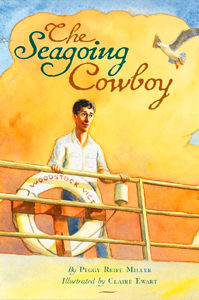

 Aug 22, 2016 – For this episode, our time machine takes us back to the aftermath of the First World War, where we’ll visit a defeated member of the Central Powers that targets ethnic minorities for wholesale slaughter. It’s not Nazi Germany, but Ottoman Turkey — in the final chapter of their genocide against Greeks, Armenians and other Christians, that the nation denies to this day.
Aug 22, 2016 – For this episode, our time machine takes us back to the aftermath of the First World War, where we’ll visit a defeated member of the Central Powers that targets ethnic minorities for wholesale slaughter. It’s not Nazi Germany, but Ottoman Turkey — in the final chapter of their genocide against Greeks, Armenians and other Christians, that the nation denies to this day. . His book was published in hardcover as The Great Fire, a fitting title since the term Holocaust itself comes from the Greek words for “whole” and “burned.” The cosmopolitan, diverse city of Smyrna is long gone, and Turkey’s Izmir built on its ashes. This is the story of how two men — a low-level YMCA minister and a U.S. Navy officer, bucked the American government and a tide of indifference or outright hatred, to save over a million ethnic Greeks from certain death.
. His book was published in hardcover as The Great Fire, a fitting title since the term Holocaust itself comes from the Greek words for “whole” and “burned.” The cosmopolitan, diverse city of Smyrna is long gone, and Turkey’s Izmir built on its ashes. This is the story of how two men — a low-level YMCA minister and a U.S. Navy officer, bucked the American government and a tide of indifference or outright hatred, to save over a million ethnic Greeks from certain death. . It’s “Soutsoukakia Smyrnaki,” or little sausages (more like meatballs) in the style of Smyrna. The city may be gone, but the history lives on in kitchens and homes all across the globe — and with the quarter of modern Greeks who chase their roots to “The Catastrophy.”
. It’s “Soutsoukakia Smyrnaki,” or little sausages (more like meatballs) in the style of Smyrna. The city may be gone, but the history lives on in kitchens and homes all across the globe — and with the quarter of modern Greeks who chase their roots to “The Catastrophy.”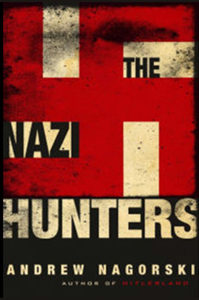
 August 15, 2016 – This week, we follow the journey of the men and women who — in the aftermath of World War Two in Europe — dedicated themselves to visiting justice upon Hitler’s Henchmen. Veteran author and foreign correspondent Andrew Nagorski brings us these stories in
August 15, 2016 – This week, we follow the journey of the men and women who — in the aftermath of World War Two in Europe — dedicated themselves to visiting justice upon Hitler’s Henchmen. Veteran author and foreign correspondent Andrew Nagorski brings us these stories in 
 , stripping away the myths and caricatures of popular fiction. The book is also an implicit call to action, breathing life into the phrase “Never Again,” as the last cogs of the National Socialist Party’s bloody legacy, rust away.
, stripping away the myths and caricatures of popular fiction. The book is also an implicit call to action, breathing life into the phrase “Never Again,” as the last cogs of the National Socialist Party’s bloody legacy, rust away. . You can also follow our guest on Twitter
. You can also follow our guest on Twitter 
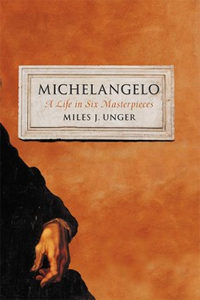
 August 8, 2016 – This week, our time machine whisks us back to meet the great master, Michelangelo: Sculptor, painter, architect, poet, and engineer. He was also the original brooding artist, who for the first time connected the artist to the work, a link we consider essential today.
August 8, 2016 – This week, our time machine whisks us back to meet the great master, Michelangelo: Sculptor, painter, architect, poet, and engineer. He was also the original brooding artist, who for the first time connected the artist to the work, a link we consider essential today. . The title calls this great master down from his Renaissance perch on the scaffold and brings him to a more human level, so we can better understand his genius through: the Pietà, the Last Judgment, the David, the Medici tombs, the story of Creation on the Sistine Chapel ceiling, and the soaring dome and vaults of St. Peter’s Basilica.
. The title calls this great master down from his Renaissance perch on the scaffold and brings him to a more human level, so we can better understand his genius through: the Pietà, the Last Judgment, the David, the Medici tombs, the story of Creation on the Sistine Chapel ceiling, and the soaring dome and vaults of St. Peter’s Basilica.

 August 1, 2016 – In this episode, our time machine takes us out to the ballgame, where we’ll root, root, root for the Brooklyn Dodgers. The year is 1947, and Dem Bums just signed Jackie Robinson, the first African-American player in Major League History.
August 1, 2016 – In this episode, our time machine takes us out to the ballgame, where we’ll root, root, root for the Brooklyn Dodgers. The year is 1947, and Dem Bums just signed Jackie Robinson, the first African-American player in Major League History. . In it, young readers will witness the challenges Robinson faced through the eyes of 12-year-old Bobby Kelly — the bat boy in the title.
. In it, young readers will witness the challenges Robinson faced through the eyes of 12-year-old Bobby Kelly — the bat boy in the title.
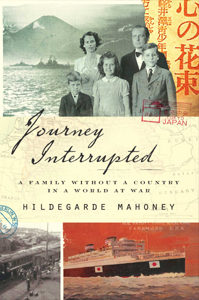
 July 25, 1016 – This week, Hildegarde Mahoney shares her memoir,
July 25, 1016 – This week, Hildegarde Mahoney shares her memoir,  . In 1941, seven-year-old Hillie and her family left home in New York City and set off for their native Germany. They planned to take the safe and scenic route: Across the U.S., the Pacific, and Eurasia via the Trans-Siberian Railway.
. In 1941, seven-year-old Hillie and her family left home in New York City and set off for their native Germany. They planned to take the safe and scenic route: Across the U.S., the Pacific, and Eurasia via the Trans-Siberian Railway.
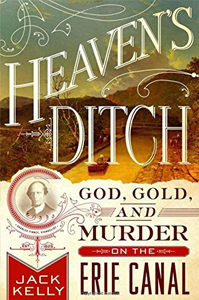
 July 18, 2016 – This week, we strapping our time machine to a canal boat, and sail down the modern marvel of early American commerce: The Erie Canal. The 360-mile slash between Lake Erie to Albany, and down the Hudson River to New York Harbor isn’t just one of engineers and back-breaking, dangerous manual labor, but of fascinating human drama and America itself.
July 18, 2016 – This week, we strapping our time machine to a canal boat, and sail down the modern marvel of early American commerce: The Erie Canal. The 360-mile slash between Lake Erie to Albany, and down the Hudson River to New York Harbor isn’t just one of engineers and back-breaking, dangerous manual labor, but of fascinating human drama and America itself. . By the time the canal opened 1825, the nation had fallen in love with this man-made waterway. Now, you can fall in love with it, too, thanks to Jack Kelly — journalist, novelist, and
. By the time the canal opened 1825, the nation had fallen in love with this man-made waterway. Now, you can fall in love with it, too, thanks to Jack Kelly — journalist, novelist, and  , which earned the
, which earned the 
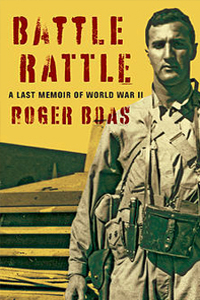
 July 11, 2016 – Today, we travel back in time to World War Two, and hear from a veteran who served on the front lines. Our guest is Roger Boas, and his book is
July 11, 2016 – Today, we travel back in time to World War Two, and hear from a veteran who served on the front lines. Our guest is Roger Boas, and his book is  . It focuses not only on the fighting, but the scars it left on the inside.
. It focuses not only on the fighting, but the scars it left on the inside.
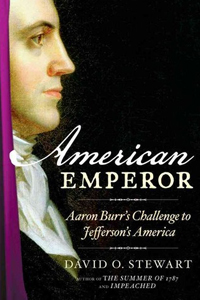

 July 8, 2016 – On Monday, July 11, 2016, we’ll commemorate the tragic death of one Founding Father — Alexander Hamilton — at the hands of another, Vice President Aaron Burr. With “
July 8, 2016 – On Monday, July 11, 2016, we’ll commemorate the tragic death of one Founding Father — Alexander Hamilton — at the hands of another, Vice President Aaron Burr. With “
 . And since we are looking ahead to the 212th anniversary of the Burr-Hamilton Duel, those of us in the Greater New York City area won’t want to miss the annual gathering at the Hamilton Memorial overlooking the Weehawken Dueling Grounds in New Jersey, just across the Hudson from Manhattan.
. And since we are looking ahead to the 212th anniversary of the Burr-Hamilton Duel, those of us in the Greater New York City area won’t want to miss the annual gathering at the Hamilton Memorial overlooking the Weehawken Dueling Grounds in New Jersey, just across the Hudson from Manhattan. . You can also find the man of the hour in our
. You can also find the man of the hour in our  . We also
. We also  . And if you’re still hungry for more, visit the
. And if you’re still hungry for more, visit the 
 .
.
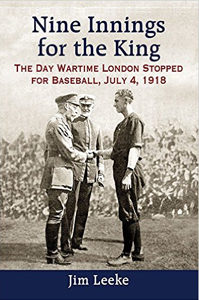
 July 4, 2016 – On this Independence Day, our time machine takes us out to the ball game, on a July 4th neither side of the Revolutionary War could possibly have envisioned during the conflict. The place is Chelsea, England. The time: The Great War. The book is titled,
July 4, 2016 – On this Independence Day, our time machine takes us out to the ball game, on a July 4th neither side of the Revolutionary War could possibly have envisioned during the conflict. The place is Chelsea, England. The time: The Great War. The book is titled,  .
. . Jim is a contributor to the Society for American Baseball Research Baseball (SABR) Biography Project, the writer or editor of several books on U.S. and military history, and the
. Jim is a contributor to the Society for American Baseball Research Baseball (SABR) Biography Project, the writer or editor of several books on U.S. and military history, and the 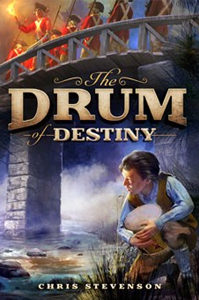
 June 27, 2016 – Today, we jump through the Guardian of Forever and into New York City during the American Revolution — just in time for Independence Day 2016. Once there, we meet twelve-year-old Gabriel Cooper, an orphaned patriot who sets out to join the Continental Army.
June 27, 2016 – Today, we jump through the Guardian of Forever and into New York City during the American Revolution — just in time for Independence Day 2016. Once there, we meet twelve-year-old Gabriel Cooper, an orphaned patriot who sets out to join the Continental Army. , historical fiction for readers 9-12 years of age. You can find a teacher’s guide at
, historical fiction for readers 9-12 years of age. You can find a teacher’s guide at 
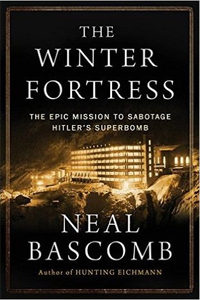
 June 20, 2016 – Our Monday, June 20th interview is with award-winning author Neal Bascomb. We’re airing our conversation a few days early because his book —
June 20, 2016 – Our Monday, June 20th interview is with award-winning author Neal Bascomb. We’re airing our conversation a few days early because his book —  — is a perfect gift for Father’s Day.
— is a perfect gift for Father’s Day. .
.

 June 13, 2016 – Today, we’re spinning back in time to the days when America tore itself apart: The Civil War. But we’ll be talking about a different sort of union, exploring the bond between the men who led the northern armies, and the women by their sides in
June 13, 2016 – Today, we’re spinning back in time to the days when America tore itself apart: The Civil War. But we’ll be talking about a different sort of union, exploring the bond between the men who led the northern armies, and the women by their sides in 
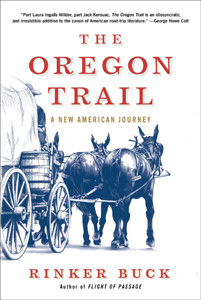
 June 6, 2016 – Today, our time machine heads back to our show’s past, serving up a special, all-new paperback interview with a familiar voice.
June 6, 2016 – Today, our time machine heads back to our show’s past, serving up a special, all-new paperback interview with a familiar voice.  — recounted the trek he made with his brother Nick in a covered wagon, two thousand miles from Missouri to the great American Northwest.
— recounted the trek he made with his brother Nick in a covered wagon, two thousand miles from Missouri to the great American Northwest.
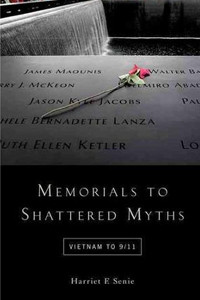
 May 30, 2016 – In this episode, we’re going to cast our eyes back at how we memorialize those we lose in wars, tragedies, terrorist attacks and public outrages. It’s a delicate topic, but we owe it to people who’ve lost their lives to get it right.
May 30, 2016 – In this episode, we’re going to cast our eyes back at how we memorialize those we lose in wars, tragedies, terrorist attacks and public outrages. It’s a delicate topic, but we owe it to people who’ve lost their lives to get it right. . Professor Senie is Director of the M.A. Program in Art History and Art Museum Studies at City College of New York, as well as a professor at the CUNY Graduate Center. She is the author of several books and articles on public art, and co-founder of the international
. Professor Senie is Director of the M.A. Program in Art History and Art Museum Studies at City College of New York, as well as a professor at the CUNY Graduate Center. She is the author of several books and articles on public art, and co-founder of the international  .
.

 May 23, 2016 – Lynn Sherr’s book is titled:
May 23, 2016 – Lynn Sherr’s book is titled:  . It includes unique insights from her friendship with the astronaut, tennis player, astrophysicist, children’s book author, and genuine American legend, as well as exclusives from Dr. Ride’s family, partner, and countless friends and colleagues. You can enjoy more from our guest
. It includes unique insights from her friendship with the astronaut, tennis player, astrophysicist, children’s book author, and genuine American legend, as well as exclusives from Dr. Ride’s family, partner, and countless friends and colleagues. You can enjoy more from our guest 

 May 16, 2016 – Our time machine drops us off in December 1892, during the planning for Chicago’s Columbian Exposition — a forerunner of the 20th Century world’s fairs — with the perfect story for the boardwalks and carnivals of Summer 2016.
May 16, 2016 – Our time machine drops us off in December 1892, during the planning for Chicago’s Columbian Exposition — a forerunner of the 20th Century world’s fairs — with the perfect story for the boardwalks and carnivals of Summer 2016. . You may have seen her several other nonfiction books for young readers, including
. You may have seen her several other nonfiction books for young readers, including  .
.
 May 9, 2016 – In this episode, our time machine door opens into the wardrobe of our First Ladies, that Narnia of fashion that trends back to the very first days of our republic, when the role of the president’s wife had — like the role of the president himself — yet to be defined.
May 9, 2016 – In this episode, our time machine door opens into the wardrobe of our First Ladies, that Narnia of fashion that trends back to the very first days of our republic, when the role of the president’s wife had — like the role of the president himself — yet to be defined. . You can find her
. You can find her 
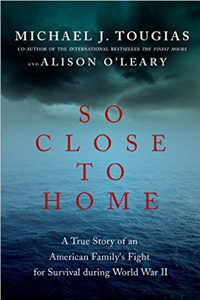
 May 2, 2016 – In this episode, our time machine touches down during the months after Pearl Harbor, as Hitler’s U-boats bring the Second World War to the Gulf of Mexico. On board the doomed steam merchant ship Heredia, we’ll bear witness to disaster with the Downs family, through the eyes of eight-year-old Sonny.
May 2, 2016 – In this episode, our time machine touches down during the months after Pearl Harbor, as Hitler’s U-boats bring the Second World War to the Gulf of Mexico. On board the doomed steam merchant ship Heredia, we’ll bear witness to disaster with the Downs family, through the eyes of eight-year-old Sonny. .
.
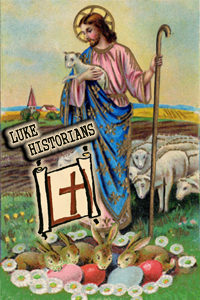 April 29, 2016 – This weekend, the Greek and Eastern Orthodox Churches take us back in time to the early days of the church, when Christ’s resurrection was celebrated after Passover in order to be historically sequential. After all, the Last Supper was a Passover Seder — which some of you might have celebrated a few days ago.
April 29, 2016 – This weekend, the Greek and Eastern Orthodox Churches take us back in time to the early days of the church, when Christ’s resurrection was celebrated after Passover in order to be historically sequential. After all, the Last Supper was a Passover Seder — which some of you might have celebrated a few days ago.
 April 25, 2016 – In this episode, we’ll step through the Guardian of Forever and meet two founding fathers who were best friends, then bitter enemies, and finally friends again: John Adams and Thomas Jefferson, the second and third presidents of the United States, and the first and second vice presidents.
April 25, 2016 – In this episode, we’ll step through the Guardian of Forever and meet two founding fathers who were best friends, then bitter enemies, and finally friends again: John Adams and Thomas Jefferson, the second and third presidents of the United States, and the first and second vice presidents. . Daniel L. Mallock grew up within walking distance of
. Daniel L. Mallock grew up within walking distance of 
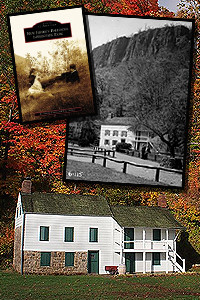
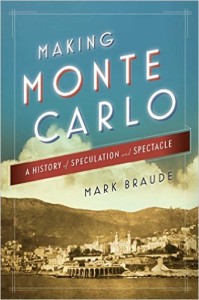
 April 11, 2016 – Today, our time machine will wend its way through the tight mountain passes of Southern France, and across the blue seas of the Mediterranean to the principality of Monaco. Yes, Monaco. The name itself conjures up images of glamour and gambling, of royalty and race cars. But how did it get that way? It’s about half the size of Central Park, the second-tiniest nation in the world. Yet it’s played a big role as a destination of gambling and vice for the world’s rich and famous.
April 11, 2016 – Today, our time machine will wend its way through the tight mountain passes of Southern France, and across the blue seas of the Mediterranean to the principality of Monaco. Yes, Monaco. The name itself conjures up images of glamour and gambling, of royalty and race cars. But how did it get that way? It’s about half the size of Central Park, the second-tiniest nation in the world. Yet it’s played a big role as a destination of gambling and vice for the world’s rich and famous. .
. 
 April 4, 2016 – Today, our time machine is whisking us back to the very earliest days of America’s republic. Our guest is Fergus Bordewich , and his book is,
April 4, 2016 – Today, our time machine is whisking us back to the very earliest days of America’s republic. Our guest is Fergus Bordewich , and his book is,  . It’s the untold story of the most productive Congress in US history, in 1789–1791.
. It’s the untold story of the most productive Congress in US history, in 1789–1791.
 , Stephen A. Douglas
, Stephen A. Douglas , and The Compromise that Preserved the Union
, and The Compromise that Preserved the Union , and
, and  . You learn more about these and his other titles at
. You learn more about these and his other titles at 
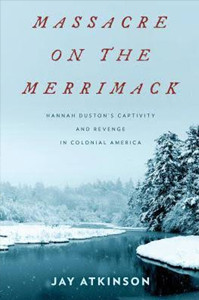
 March 28, 2016 – Step through the Guardian of Forever and back in time to colonial North America, in the heat of King William’s War. Our guide on this journey is Jay Atkinson, called “the bard of New England toughness” by Men’s Health magazine for his approach to writing and his topics. He shares the story of another tough New Englander in his new book,
March 28, 2016 – Step through the Guardian of Forever and back in time to colonial North America, in the heat of King William’s War. Our guide on this journey is Jay Atkinson, called “the bard of New England toughness” by Men’s Health magazine for his approach to writing and his topics. He shares the story of another tough New Englander in his new book,  .
. and
and  . You can visit his website,
. You can visit his website, 

 March 21, 2016 – Today, we time-travel back to the times after the times that tried men’s souls. The date is October 19, 1781, and a combined French and rebel force defeats the Redcoats at the Battle of Yorktown, Virginia. But contrary to two centuries of grade school and academic histories, the war for independence didn’t end with the surrender of General Cornwallis’s sword.
March 21, 2016 – Today, we time-travel back to the times after the times that tried men’s souls. The date is October 19, 1781, and a combined French and rebel force defeats the Redcoats at the Battle of Yorktown, Virginia. But contrary to two centuries of grade school and academic histories, the war for independence didn’t end with the surrender of General Cornwallis’s sword. . We also mentioned Fergus Bordewich’s book,
. We also mentioned Fergus Bordewich’s book,  .
.

 March 14, 2016 – Today, our time machine touches down on one of America’s darkest days: The capture of Washington, DC, and the burning of the White House, Capitol Building and a other public buildings. The man who lit the match? British Major General Robert Ross. A horseman, prankster, loving husband and daring commander who served under Wellington, Ross has fallen into obscurity over the two centuries since the War of 1812.
March 14, 2016 – Today, our time machine touches down on one of America’s darkest days: The capture of Washington, DC, and the burning of the White House, Capitol Building and a other public buildings. The man who lit the match? British Major General Robert Ross. A horseman, prankster, loving husband and daring commander who served under Wellington, Ross has fallen into obscurity over the two centuries since the War of 1812. . You can follow them on Twitter
. You can follow them on Twitter 
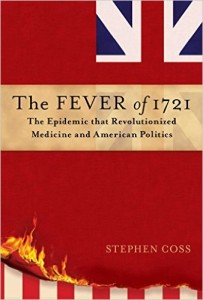
 March 7, 2016 – Today, we’re climbing into the Wayback Machine and setting the dial for the early 1700’s, when temperatures ran high in politics, the press, and from a smallpox epidemic burning through Boston. Leading us on this journey is Stephen Coss: author, ad guy, and “close personal friend of Ben Franklin.” Everything, Stephen says, that Franklin really needed to know, he learned in 1721 (and he’s only half joking).
March 7, 2016 – Today, we’re climbing into the Wayback Machine and setting the dial for the early 1700’s, when temperatures ran high in politics, the press, and from a smallpox epidemic burning through Boston. Leading us on this journey is Stephen Coss: author, ad guy, and “close personal friend of Ben Franklin.” Everything, Stephen says, that Franklin really needed to know, he learned in 1721 (and he’s only half joking). . In it, we meet historical figures including the young Franklin laboring at his brother’s newspaper, and the Reverend Cotton Mather, seeking redemption from the debacle Salem Witch Trials by pioneering the technique of inoculation against the dreaded pox.
. In it, we meet historical figures including the young Franklin laboring at his brother’s newspaper, and the Reverend Cotton Mather, seeking redemption from the debacle Salem Witch Trials by pioneering the technique of inoculation against the dreaded pox. .
.
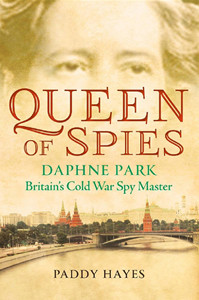
 February 29, 2016 – Our time machine for this trip is tricked out like James Bond’s Aston Martin, and we’re speeding back to the height of the Cold War. Our driver on this journey is
February 29, 2016 – Our time machine for this trip is tricked out like James Bond’s Aston Martin, and we’re speeding back to the height of the Cold War. Our driver on this journey is 

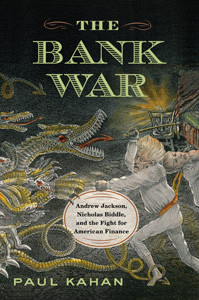
 February 22, 2016 – This week, we sling-shot around the sun at high warp, sending us tumbling back in time to the Summer of 1832 — and America, at war. It’s not a conflict over land or of arms, but over the fiscal system of the young republic. Our guide on this journey is Paul Kahan, and his book is
February 22, 2016 – This week, we sling-shot around the sun at high warp, sending us tumbling back in time to the Summer of 1832 — and America, at war. It’s not a conflict over land or of arms, but over the fiscal system of the young republic. Our guide on this journey is Paul Kahan, and his book is  .
. .
.

 February 15, 2016 – Today’s destination is America in the 1870s, and our guest is Sheila Myers, author of the novel Ephemeral Summer, and associate professor at Cayuga Community College. Her latest novel is
February 15, 2016 – Today’s destination is America in the 1870s, and our guest is Sheila Myers, author of the novel Ephemeral Summer, and associate professor at Cayuga Community College. Her latest novel is  . At the dawn of what Mark Twain would later dub the Gilded Age, the economy suffered a panic — what we’d call a depression — brought on, in part, by over-speculation in railroads.
. At the dawn of what Mark Twain would later dub the Gilded Age, the economy suffered a panic — what we’d call a depression — brought on, in part, by over-speculation in railroads.

 February 8, 2016 – Today, we’re riding in Great White Coach with the father of our country. Our teamster is author Timothy Hall Breen, and his book is
February 8, 2016 – Today, we’re riding in Great White Coach with the father of our country. Our teamster is author Timothy Hall Breen, and his book is  . Aware of the fragile and fractured nature of the new republic after independence, Washington resolves — in a day without maps or roads worthy of the name — to take the federal government to the people.
. Aware of the fragile and fractured nature of the new republic after independence, Washington resolves — in a day without maps or roads worthy of the name — to take the federal government to the people.
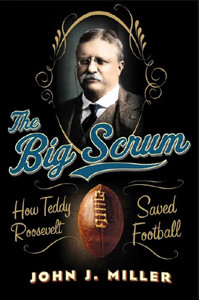

 February 1, 2016 – An advocate of the strenuous life, President Theodore Roosevelt saw sports as essential to developing physical fitness and character. So when 18 players died playing football in 1905, and people called to ban the game, TR leaped into action to reform the pigskin pastime.
February 1, 2016 – An advocate of the strenuous life, President Theodore Roosevelt saw sports as essential to developing physical fitness and character. So when 18 players died playing football in 1905, and people called to ban the game, TR leaped into action to reform the pigskin pastime. .
. , and the non-fiction offering:
, and the non-fiction offering:  . He’s also
. He’s also  (Film, 1997)
(Film, 1997)
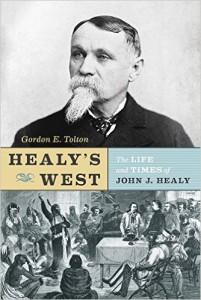
 January 25, 2016 – In this episode, we’ll be boarding a Pullman car attached to one of the great trains connecting the North American east and west coasts, all the way up into the Alaskan and Yukon territories — and very nearly across the Bering Strait to Siberia. Our conductor on this journey is Gordon E. Tolton, author of
January 25, 2016 – In this episode, we’ll be boarding a Pullman car attached to one of the great trains connecting the North American east and west coasts, all the way up into the Alaskan and Yukon territories — and very nearly across the Bering Strait to Siberia. Our conductor on this journey is Gordon E. Tolton, author of  .
.
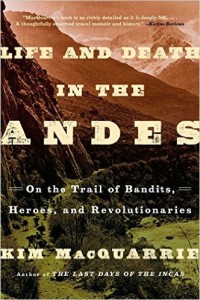
 January 18, 2016 – This week, we’re flying our time machine across the Equator and into South America’s turbulent past, where we’ll meet some colorful characters, present at key moments of its history. They include Pablo Escobar, Butch Cassidy, Sundance, Charles Darwin, and a 14-year-old girl, Juanita, who the Incas sacrificed atop a twenty-thousand foot volcano.
January 18, 2016 – This week, we’re flying our time machine across the Equator and into South America’s turbulent past, where we’ll meet some colorful characters, present at key moments of its history. They include Pablo Escobar, Butch Cassidy, Sundance, Charles Darwin, and a 14-year-old girl, Juanita, who the Incas sacrificed atop a twenty-thousand foot volcano. . You can follow him
. You can follow him  , into a 13-part TV series: Conquistadors. Other books we discuss include Candice Millard’s epic Amazon history:
, into a 13-part TV series: Conquistadors. Other books we discuss include Candice Millard’s epic Amazon history:  .
.
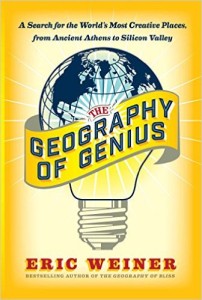
 January 4, 2016 – In this episode, we’re racing the time machine through a bunch of stops around the world and throughout history. Our ticket is
January 4, 2016 – In this episode, we’re racing the time machine through a bunch of stops around the world and throughout history. Our ticket is  . We’ll be guided along the way by Eric Weiner, author of the New York Times bestseller
. We’ll be guided along the way by Eric Weiner, author of the New York Times bestseller 
 , as well as the critically acclaimed
, as well as the critically acclaimed  .
.
 December 28, 2015 – Today, we’re joined by Stephen F. Knott, who along with co-author Tony Williams brings us
December 28, 2015 – Today, we’re joined by Stephen F. Knott, who along with co-author Tony Williams brings us  . George Washington and Alexander Hamilton’s relationship has gotten renewed attention since the smash Broadway musical, ending almost 200 years of being overlooked.
. George Washington and Alexander Hamilton’s relationship has gotten renewed attention since the smash Broadway musical, ending almost 200 years of being overlooked.
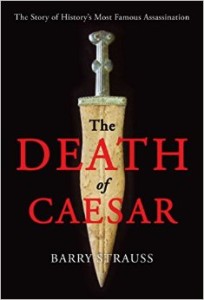
 December 21, 2015 – Today we sit down with Barry Strauss, professor of history and classics at Cornell University. A leading expert on ancient military history who counts Mel Brooks as his greatest living inspiration, he has written or edited several books, including
December 21, 2015 – Today we sit down with Barry Strauss, professor of history and classics at Cornell University. A leading expert on ancient military history who counts Mel Brooks as his greatest living inspiration, he has written or edited several books, including  ,
,  , and
, and  .
.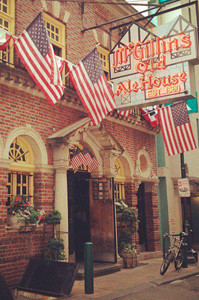

 December 7, 2015 – On this Pearl Harbor Day, we mark the Japanese attack on Hawaii, and travel back 75 years to meet Aarol W. “Bud” Irish in the European Theater where he fought the Nazis. On the Memorial Day after Bud passed away in 2006, his daughter Teresa opened her father’s mysterious old Army trunk and found stacks and stacks of letters from the front.
December 7, 2015 – On this Pearl Harbor Day, we mark the Japanese attack on Hawaii, and travel back 75 years to meet Aarol W. “Bud” Irish in the European Theater where he fought the Nazis. On the Memorial Day after Bud passed away in 2006, his daughter Teresa opened her father’s mysterious old Army trunk and found stacks and stacks of letters from the front. . Along with over 100 pictures, the book also includes the responses from Bud’s girl back home — who would eventually become his wife and Teresa’s mother.
. Along with over 100 pictures, the book also includes the responses from Bud’s girl back home — who would eventually become his wife and Teresa’s mother.
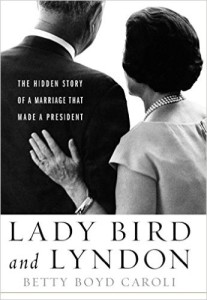

 .
. , as well as,
, as well as, 
 . You can learn more about her work at
. You can learn more about her work at 
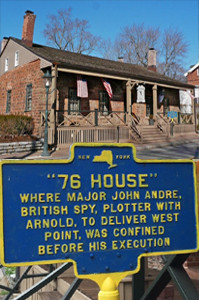
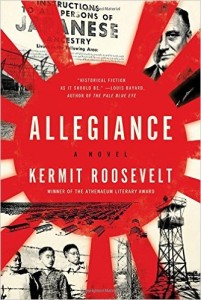
 , a legal thriller built around the internment of Americans with Japanese ancestry — 62% of them American citizens — under Franklin Roosevelt’s infamous Executive Order 9066.
, a legal thriller built around the internment of Americans with Japanese ancestry — 62% of them American citizens — under Franklin Roosevelt’s infamous Executive Order 9066. and a former clerk for Supreme Court Justice David Souter.
and a former clerk for Supreme Court Justice David Souter. . Now I have two favorites. Kermit Roosevelt’s
. Now I have two favorites. Kermit Roosevelt’s  is an instant classic.” We also mentioned our interview with David O. Stewart, and his book on the Father of the Constitution:
is an instant classic.” We also mentioned our interview with David O. Stewart, and his book on the Father of the Constitution:  .
.
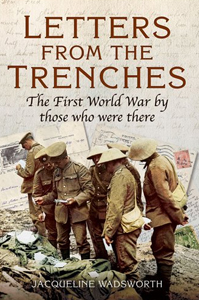
 November 9, 2015 – In honor of Veterans Day and Remembrance Day on November 11th, Bristol writer Jacqueline Wadsworth takes us back to “the war to end all wars” in
November 9, 2015 – In honor of Veterans Day and Remembrance Day on November 11th, Bristol writer Jacqueline Wadsworth takes us back to “the war to end all wars” in  . We hear from soldiers on the Western Front, Mesopotamia, Gallipoli, Italy, Northern Russia — and, of course, from the women and children suffering through the Great War back home.
. We hear from soldiers on the Western Front, Mesopotamia, Gallipoli, Italy, Northern Russia — and, of course, from the women and children suffering through the Great War back home. , “A warm evocation of how ordinary people’s lives were affected by a devastating conflict,” and they highly recommend it. But Jacqueline’s book is more than a pile of letters, more than another poetic retelling of the romance and tragedy of the war. It’s a book where real people speak for themselves, as war upends their daily lives.
, “A warm evocation of how ordinary people’s lives were affected by a devastating conflict,” and they highly recommend it. But Jacqueline’s book is more than a pile of letters, more than another poetic retelling of the romance and tragedy of the war. It’s a book where real people speak for themselves, as war upends their daily lives.

 November 2, 2015 – For our first historical fiction author, we’re pleased to introduce Jennifer Kincheloe’s debut novel:
November 2, 2015 – For our first historical fiction author, we’re pleased to introduce Jennifer Kincheloe’s debut novel:  . Join us in 1907 Los Angeles, where Anna Blanc chafes under the thumb of her controlling father and yearns for a life of crime — solving them that is.
. Join us in 1907 Los Angeles, where Anna Blanc chafes under the thumb of her controlling father and yearns for a life of crime — solving them that is.


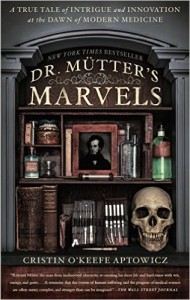
 October 29, 2015 – In this special, Halloween episode, we’re traveling back to the days before the American Civil War, when doctors would take their scalpels to fully awake patients — the pre-microbial era when the causes of common diseases remained a mystery, and when oil lamps and flammable clothing combined to engulf a staggering number of people in flames.
October 29, 2015 – In this special, Halloween episode, we’re traveling back to the days before the American Civil War, when doctors would take their scalpels to fully awake patients — the pre-microbial era when the causes of common diseases remained a mystery, and when oil lamps and flammable clothing combined to engulf a staggering number of people in flames. Cristin is an award-winning writer and the author of seven books. You can visit her website,
Cristin is an award-winning writer and the author of seven books. You can visit her website, 




 October 19, 2015 – On this episode, you’ll meet five legends — George Washington, Thomas Jefferson, Alexander Hamilton, James Monroe, and Dolley Madison — as viewed through their relationships with James Madison. Often overlooked in death as he was in life (and having the White House burned out from under him in the War of 1812 didn’t help), David O. Stewart reveals a founding father and president uniquely adept at what we today call “networking.”
October 19, 2015 – On this episode, you’ll meet five legends — George Washington, Thomas Jefferson, Alexander Hamilton, James Monroe, and Dolley Madison — as viewed through their relationships with James Madison. Often overlooked in death as he was in life (and having the White House burned out from under him in the War of 1812 didn’t help), David O. Stewart reveals a founding father and president uniquely adept at what we today call “networking.” . Just as Gen. Washington was indispensable in winning the war, so was Madison indispensable in winning the peace and setting up the first self-governing republic since Rome.
. Just as Gen. Washington was indispensable in winning the war, so was Madison indispensable in winning the peace and setting up the first self-governing republic since Rome. .
.  .
.  .
.
 October 12, 2015 – On this episode, we’ll visit a key period in Winston Churchill’s life, half a century before World War Two. In the late 1800s, Churchill chased adventure in the Sudan, South Africa, India and Cuba, filing dispatches that helped build his resume, and fill his empty wallet.
October 12, 2015 – On this episode, we’ll visit a key period in Winston Churchill’s life, half a century before World War Two. In the late 1800s, Churchill chased adventure in the Sudan, South Africa, India and Cuba, filing dispatches that helped build his resume, and fill his empty wallet.











 October 6, 2015 – How did Winston Churchill overcome so many personal, financial and professional setbacks to lead the United Kingdom to victory during its darkest hour, when the Empire nation stood alone against Hitler? The answer may surprise you, and that’s the focus of a new book. It’s God & Churchill: How the Great Leader’s Sense of Divine Destiny Changed His Troubled World and Offers Hope for Ours.
October 6, 2015 – How did Winston Churchill overcome so many personal, financial and professional setbacks to lead the United Kingdom to victory during its darkest hour, when the Empire nation stood alone against Hitler? The answer may surprise you, and that’s the focus of a new book. It’s God & Churchill: How the Great Leader’s Sense of Divine Destiny Changed His Troubled World and Offers Hope for Ours.




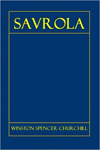





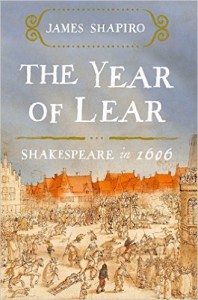
 On this episode, we visit the theaters, throne rooms and taverns of London 400 years ago, as seen through the eyes of William Shakespeare. History Author Show correspondent Stephen Bedford met our guide to Jacobian London in the shadow of the immortal bard’s statue in Central Park. He is renowned Shakespeare scholar James Shapiro, professor of English of Columbia University.
On this episode, we visit the theaters, throne rooms and taverns of London 400 years ago, as seen through the eyes of William Shakespeare. History Author Show correspondent Stephen Bedford met our guide to Jacobian London in the shadow of the immortal bard’s statue in Central Park. He is renowned Shakespeare scholar James Shapiro, professor of English of Columbia University. . That was a particularly chaotic year in England with King James’ ascension and the foiling of the Gunpowder Plot. But this atmosphere of crisis inspired Shakespeare, and he went on to produce three of his greatest tragedies that year: King Lear, Macbeth, Antony and Cleopatra.
. That was a particularly chaotic year in England with King James’ ascension and the foiling of the Gunpowder Plot. But this atmosphere of crisis inspired Shakespeare, and he went on to produce three of his greatest tragedies that year: King Lear, Macbeth, Antony and Cleopatra. ? You can find him at
? You can find him at 

 September 28, 2015 – Even casual baseball fans can name the game’s greatest heroes, and its most infamous villain: Ty Cobb. Yes, it’s something that even Yankees and Red Sox fans can agree on: “The Georgia Peach” wasn’t a very nice fellow. But what if everyone is wrong? What if, like Ulysses S. Grant, Ty Cobb’s enemies were just more prolific writers than his friends? What if by accepting the view of Ty Cobb as a belligerent racist and dirty player, we’re smearing baseball’s all-time great, and abetting a century of shoddy reporting?
September 28, 2015 – Even casual baseball fans can name the game’s greatest heroes, and its most infamous villain: Ty Cobb. Yes, it’s something that even Yankees and Red Sox fans can agree on: “The Georgia Peach” wasn’t a very nice fellow. But what if everyone is wrong? What if, like Ulysses S. Grant, Ty Cobb’s enemies were just more prolific writers than his friends? What if by accepting the view of Ty Cobb as a belligerent racist and dirty player, we’re smearing baseball’s all-time great, and abetting a century of shoddy reporting? . In it, Mr. Leerhsen questioned all the accepted truths about Cobb and found the facts striking out.
. In it, Mr. Leerhsen questioned all the accepted truths about Cobb and found the facts striking out.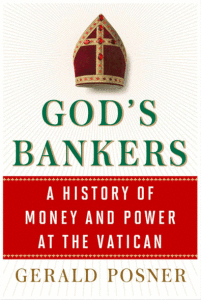
 . It’s a book not about faith, but about finances. And it begs the question: Can the man called the people’s pope, Francis, overcome the resistance to change in the Vatican’s inner court, and rein in its excesses? Can the new pontiff, in short, succeed where all his predecessors failed?
. It’s a book not about faith, but about finances. And it begs the question: Can the man called the people’s pope, Francis, overcome the resistance to change in the Vatican’s inner court, and rein in its excesses? Can the new pontiff, in short, succeed where all his predecessors failed? . It’s an adventure that races from the grandeur of the Vatican across the vastness of Asia, ultimately involving China, the Mafia, and the conclave of cardinals that will elect the next pope.
. It’s an adventure that races from the grandeur of the Vatican across the vastness of Asia, ultimately involving China, the Mafia, and the conclave of cardinals that will elect the next pope.




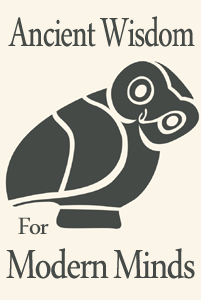
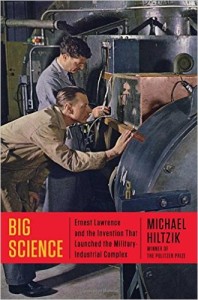
 and
and  . You can follow him on Twitter
. You can follow him on Twitter 

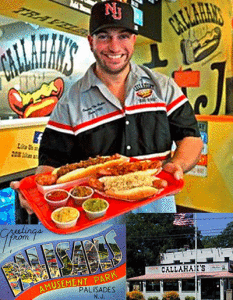
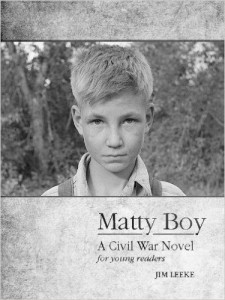
 August 31, 2015 – In our last episode of August, we introduce you to our first History Author Show correspondent:
August 31, 2015 – In our last episode of August, we introduce you to our first History Author Show correspondent:  . Amanda seemed perfect for this conversation. She not only counts both Ulysses S. Grant and Robert E. Lee as ancestors, but she’s the eldest of nine children. We’ll also hear from Jim Leeke again on a book for adults:
. Amanda seemed perfect for this conversation. She not only counts both Ulysses S. Grant and Robert E. Lee as ancestors, but she’s the eldest of nine children. We’ll also hear from Jim Leeke again on a book for adults: 


 . In it, she introduces us to William Alvin Lloyd. Con man, bigamist, charlatan, Lloyd hobbled out of the defeated Confederacy and into the capital of the newly re-United States with a claim that made people listen: The government owed him money for serving as Abraham Lincoln’s covert operative.
. In it, she introduces us to William Alvin Lloyd. Con man, bigamist, charlatan, Lloyd hobbled out of the defeated Confederacy and into the capital of the newly re-United States with a claim that made people listen: The government owed him money for serving as Abraham Lincoln’s covert operative.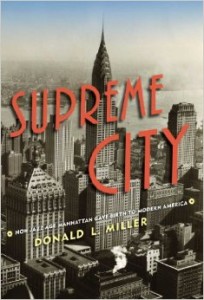
 August 17, 2015 – You’re familiar with our theme song, 1925’s New York Ain’t New York Anymore. It’s the perfect segue into today’s book,
August 17, 2015 – You’re familiar with our theme song, 1925’s New York Ain’t New York Anymore. It’s the perfect segue into today’s book,  . The story of speakeasies, Flappers and radio is brought to us by Donald L. Miller. He’s the John Henry MacCracken Professor of History at Lafayette College and also authored
. The story of speakeasies, Flappers and radio is brought to us by Donald L. Miller. He’s the John Henry MacCracken Professor of History at Lafayette College and also authored  August 10, 2015 – Three mules, two brothers, and a Jack Russell terrier. Together they rattle 2000 miles from Missouri to the great American Northwest in a covered wagon. That isn’t the setup for a Vaudeville joke, but there are plenty of laughs found on the ruts, roads and interstates. That’s right, interstates. The trip doesn’t take place before the Civil War, but in our time.
August 10, 2015 – Three mules, two brothers, and a Jack Russell terrier. Together they rattle 2000 miles from Missouri to the great American Northwest in a covered wagon. That isn’t the setup for a Vaudeville joke, but there are plenty of laughs found on the ruts, roads and interstates. That’s right, interstates. The trip doesn’t take place before the Civil War, but in our time.
























